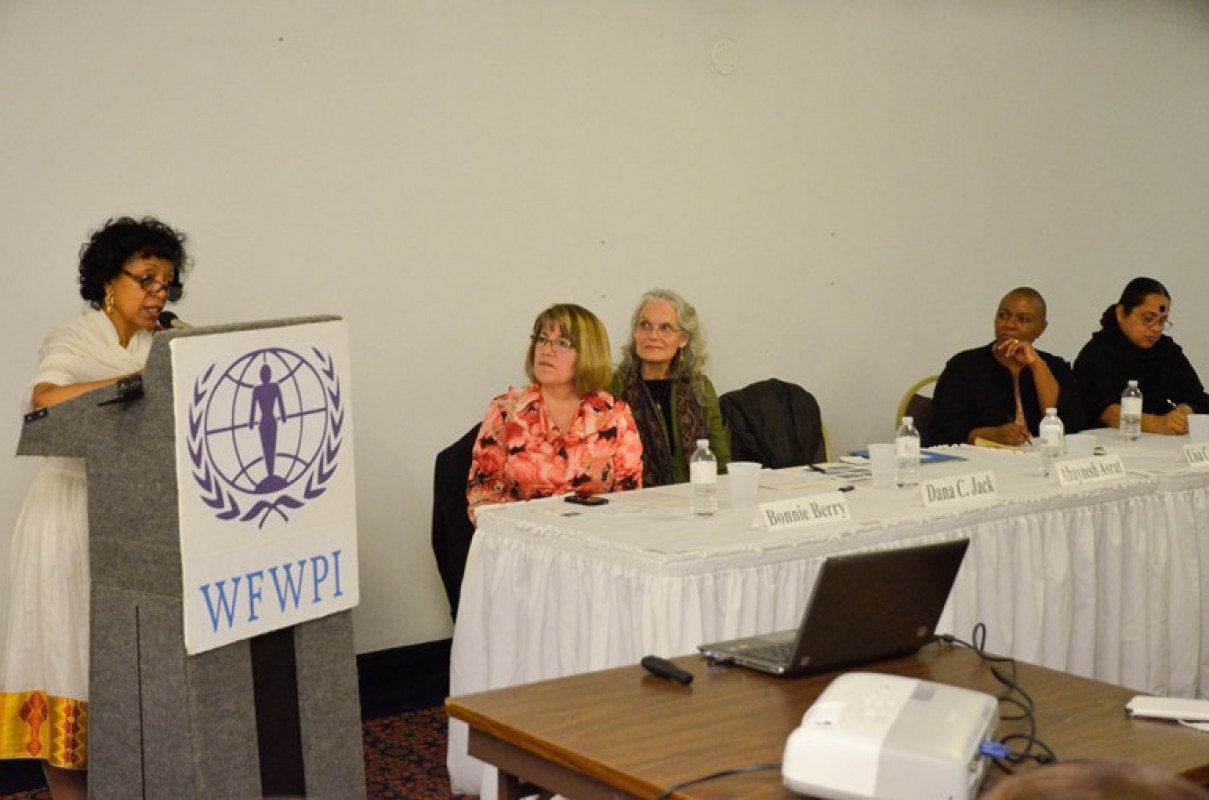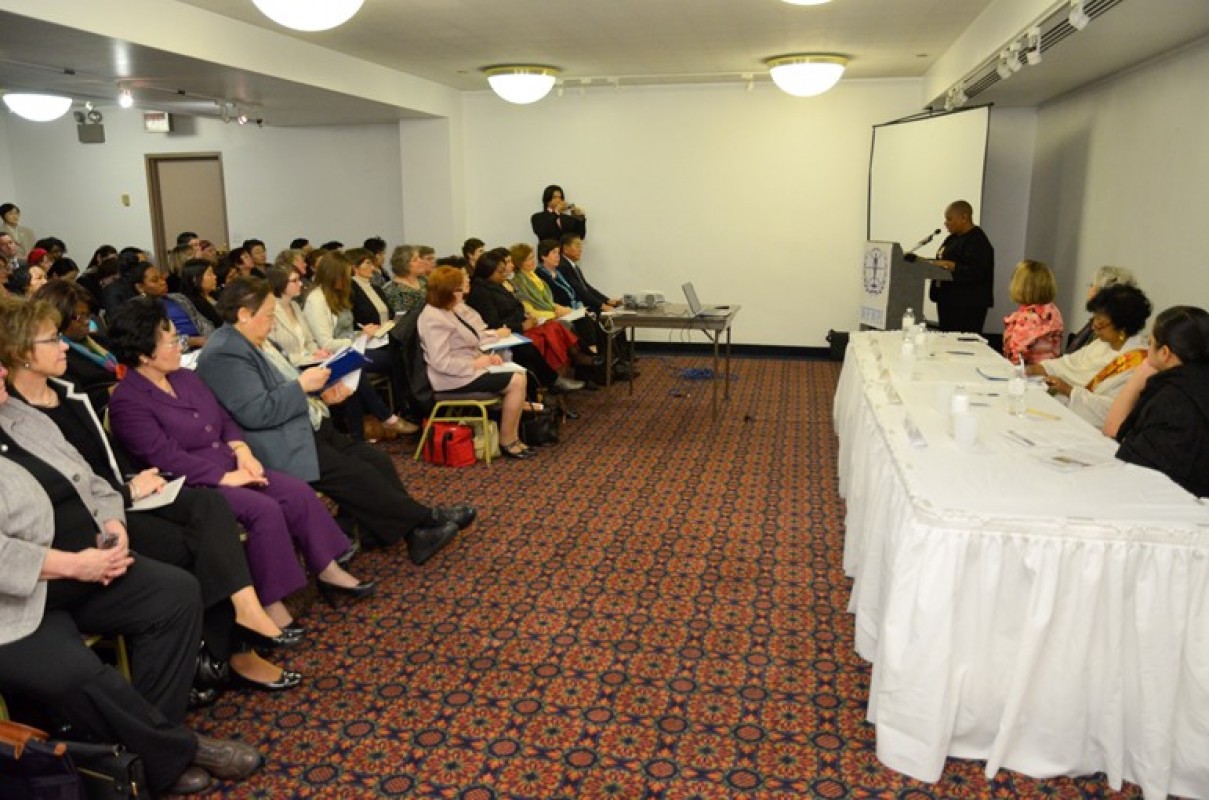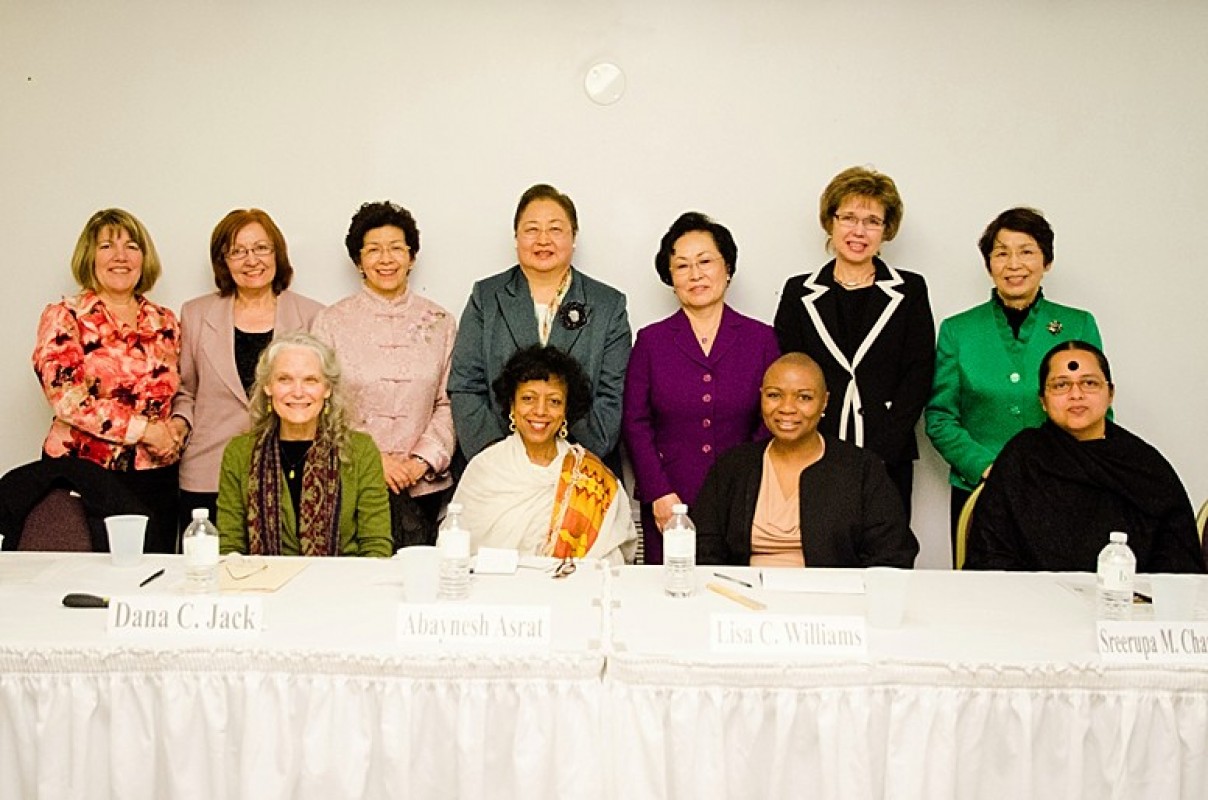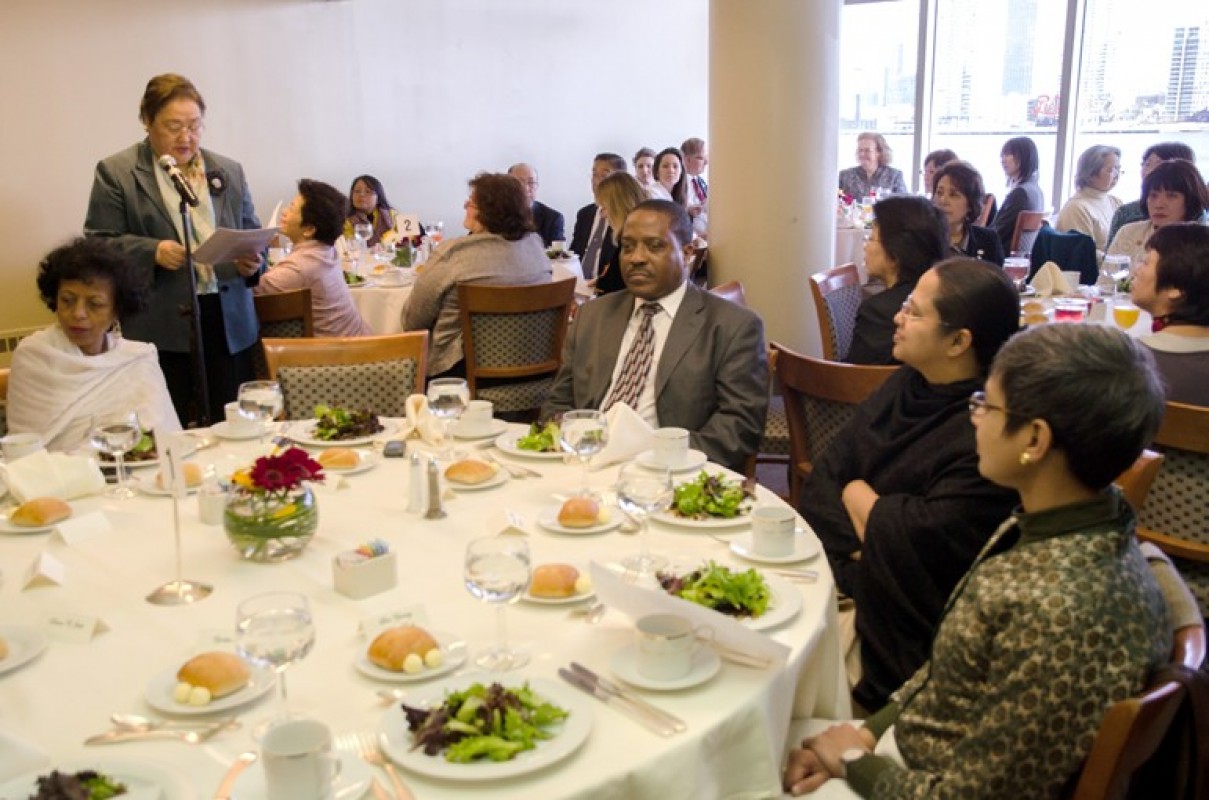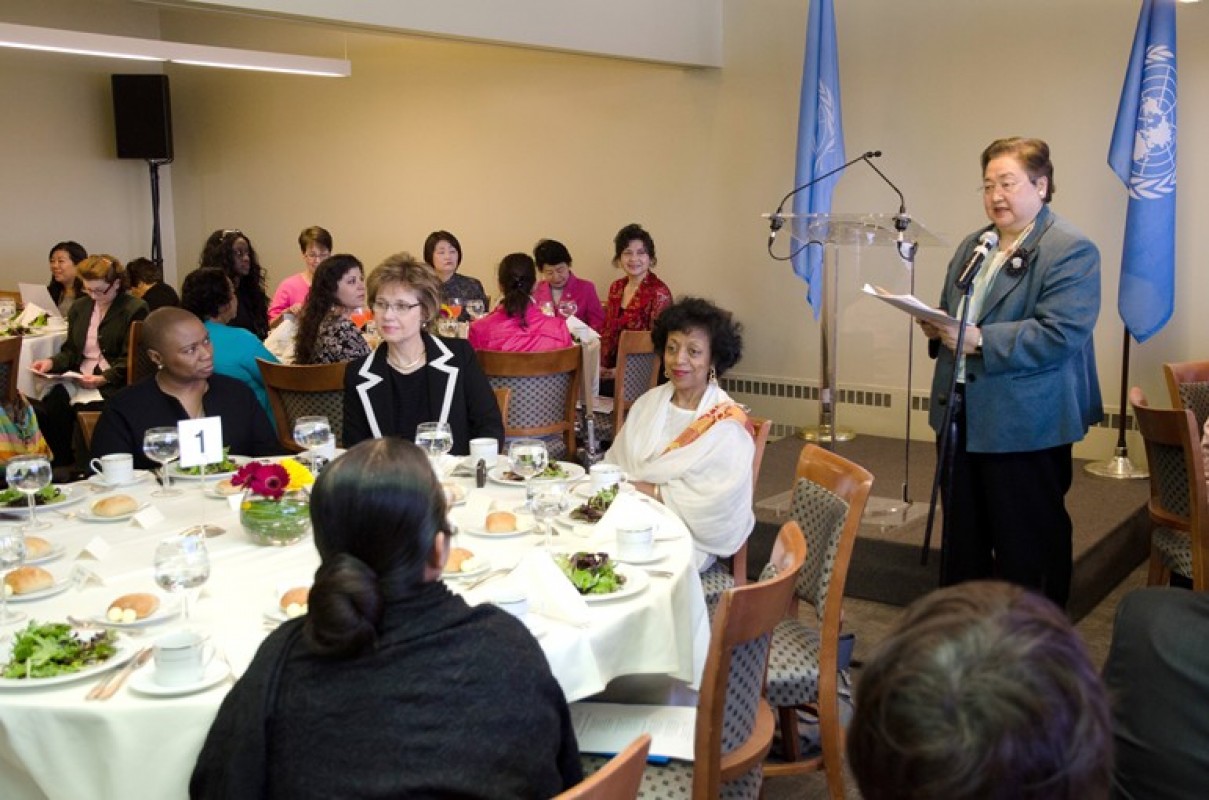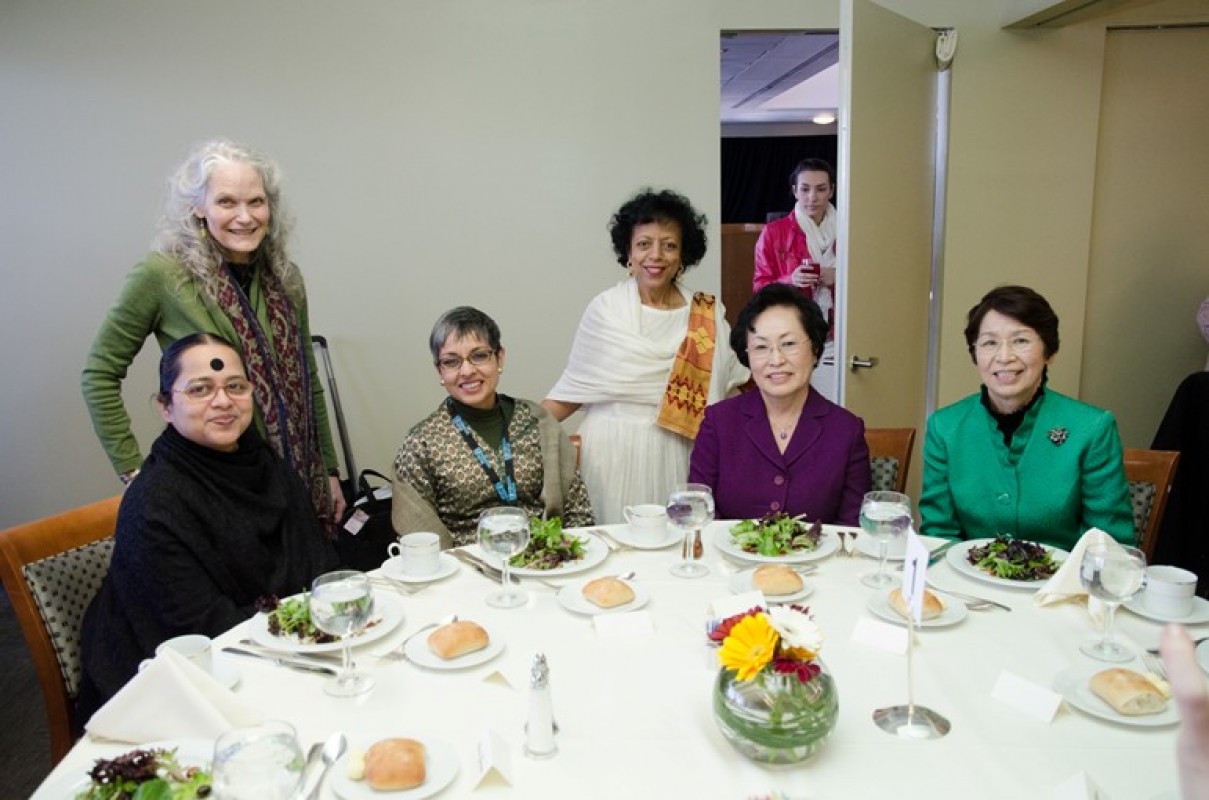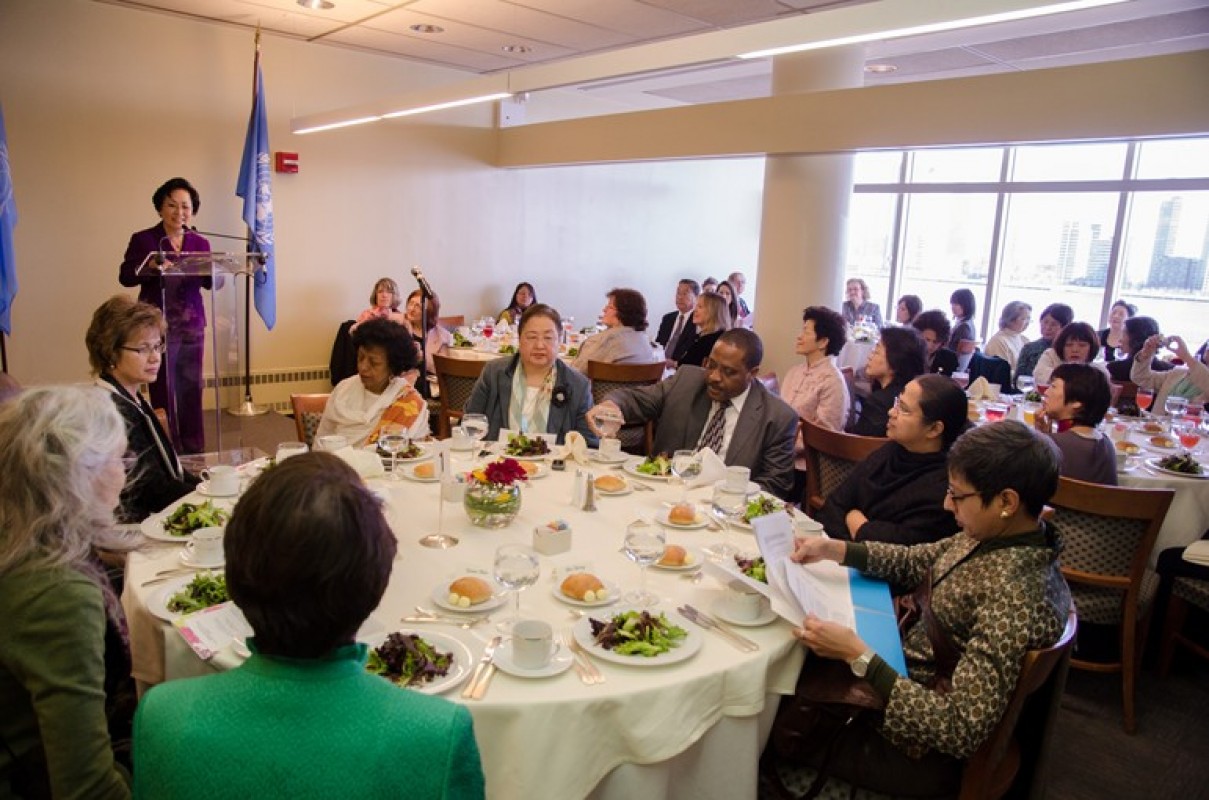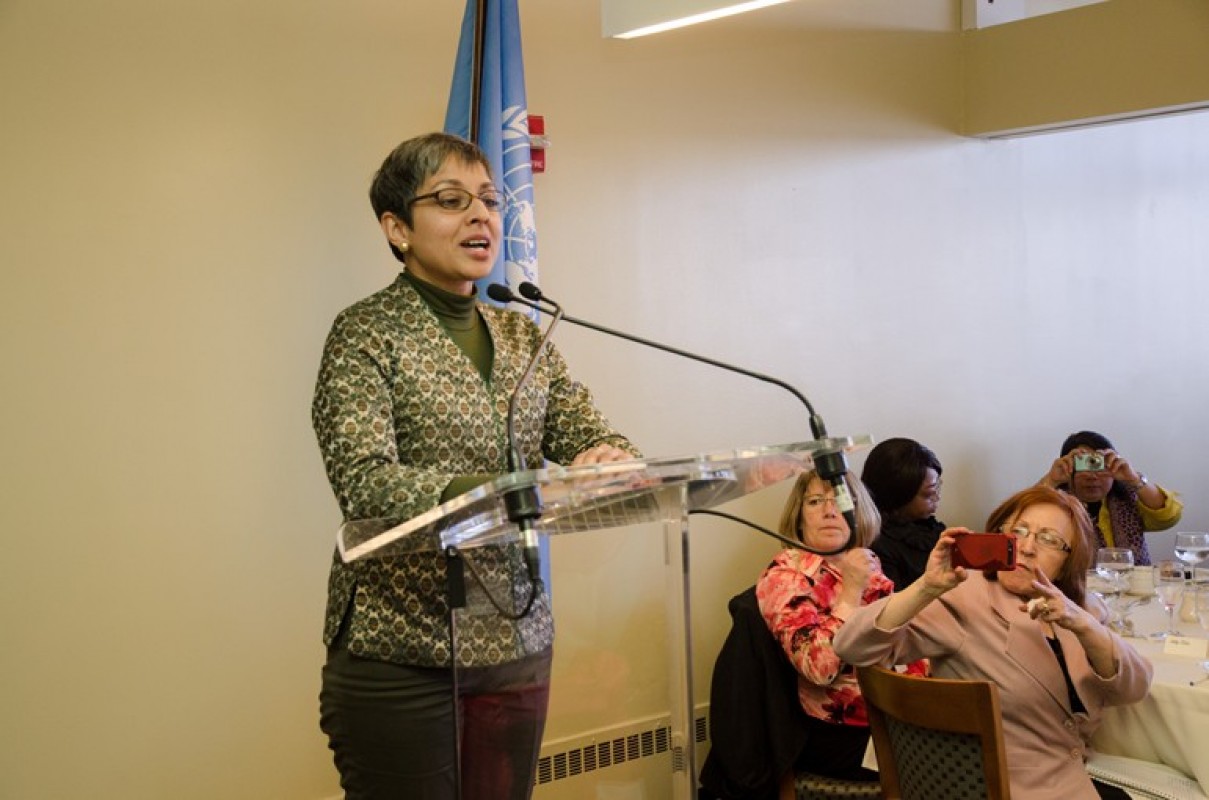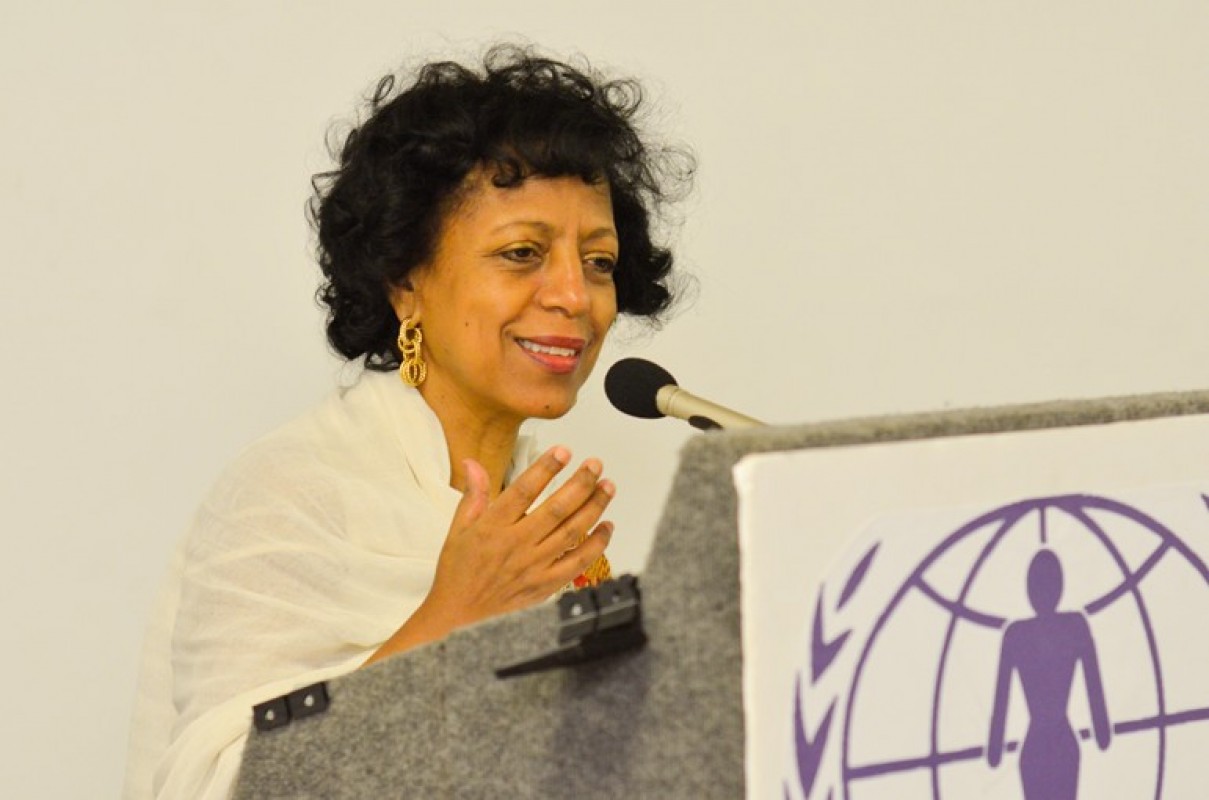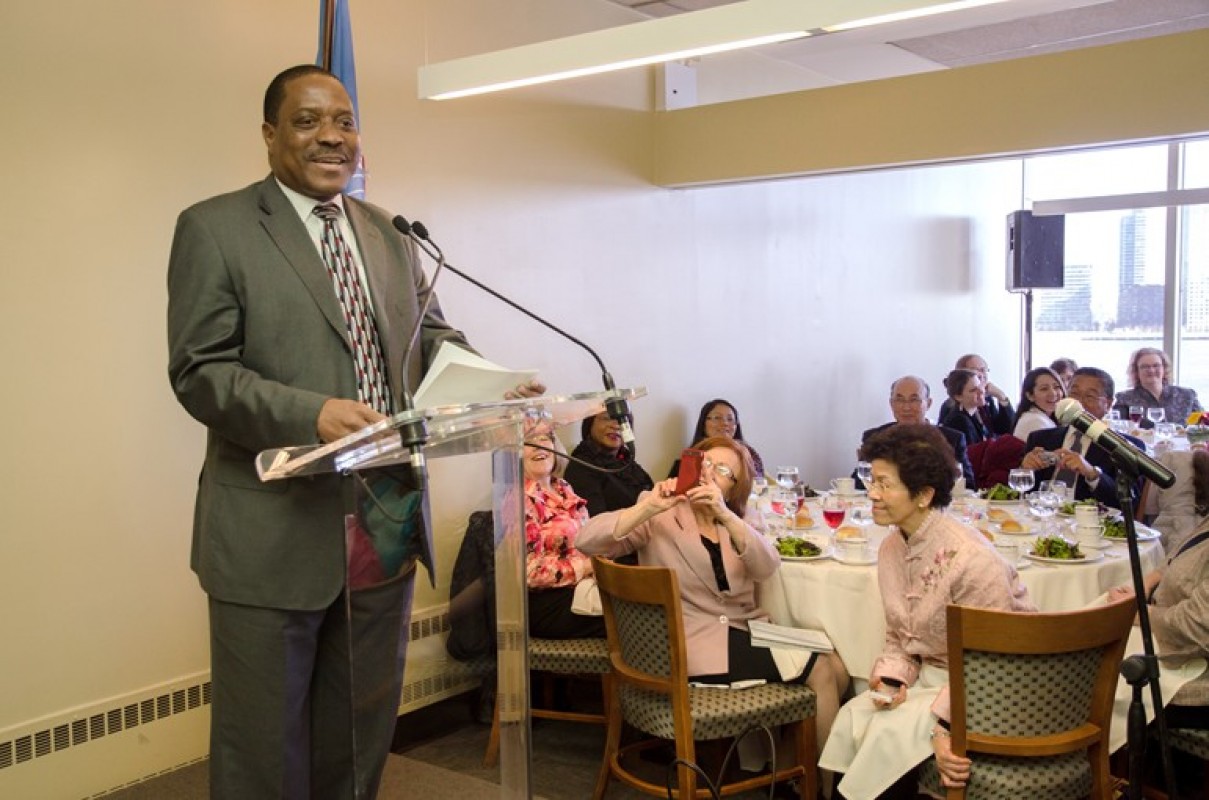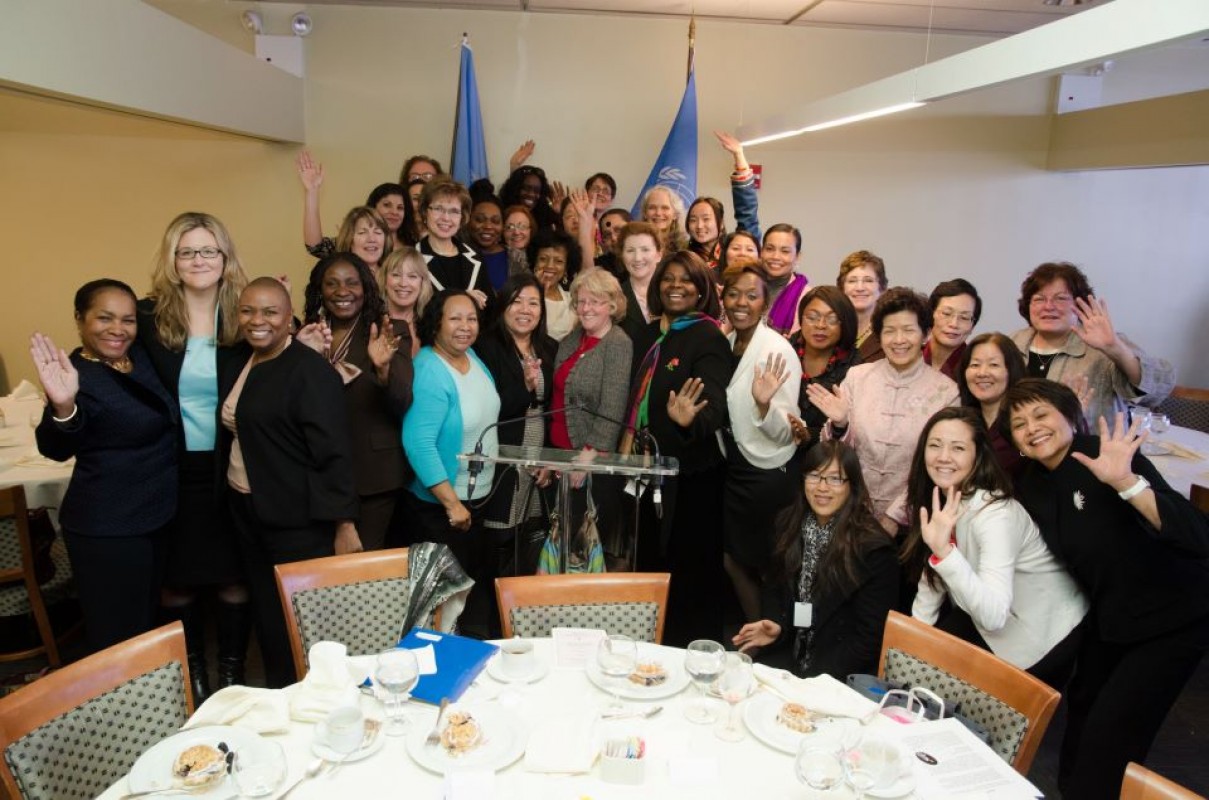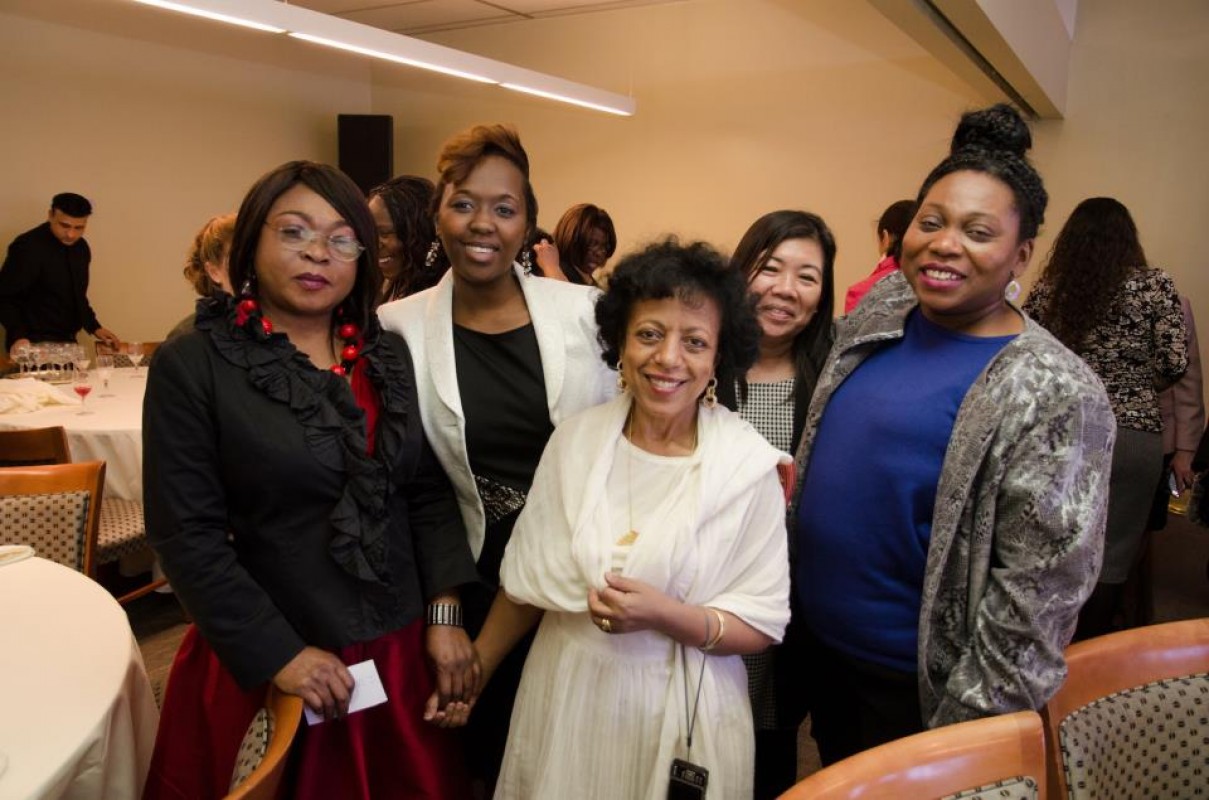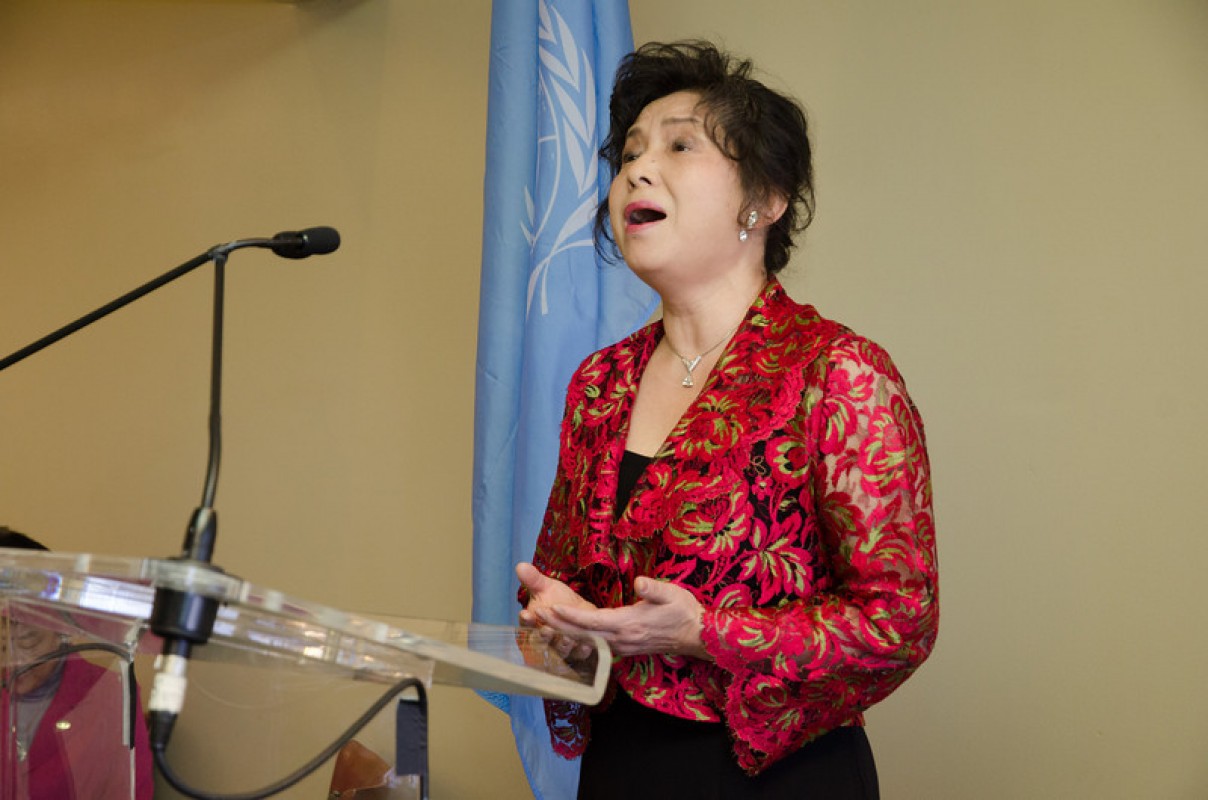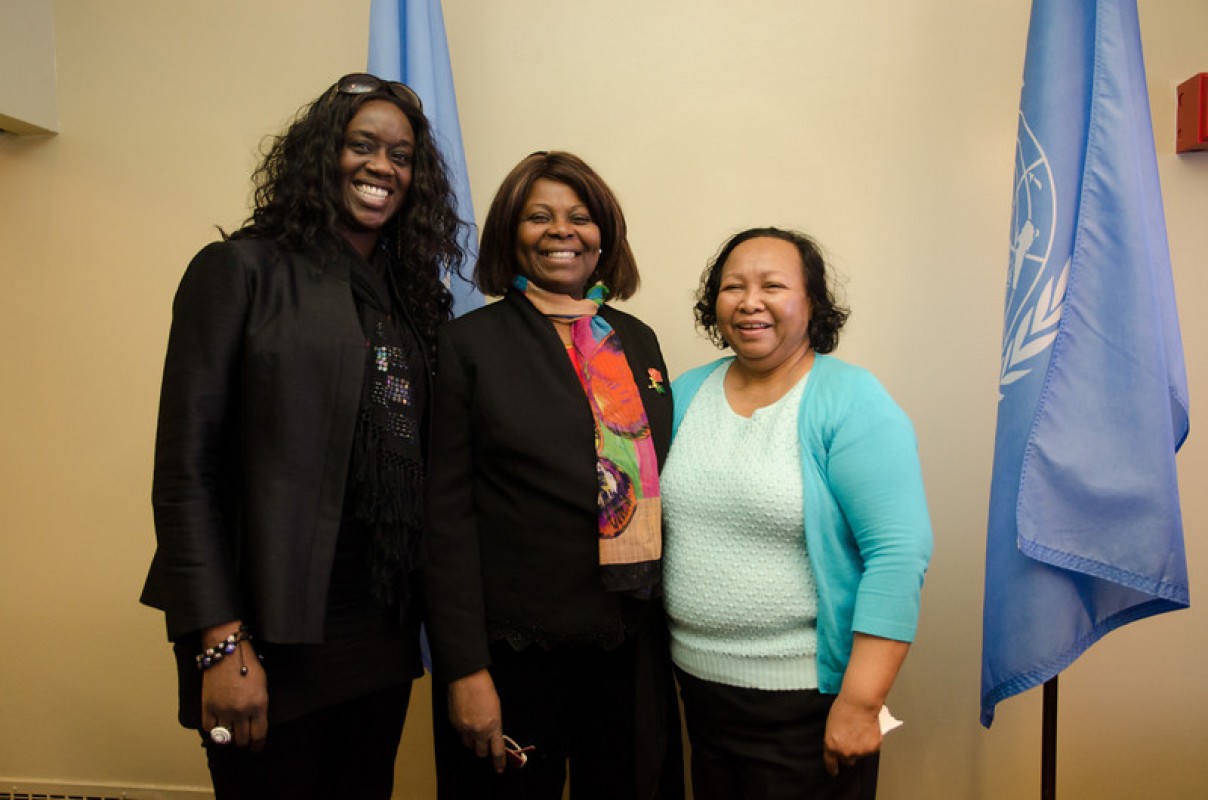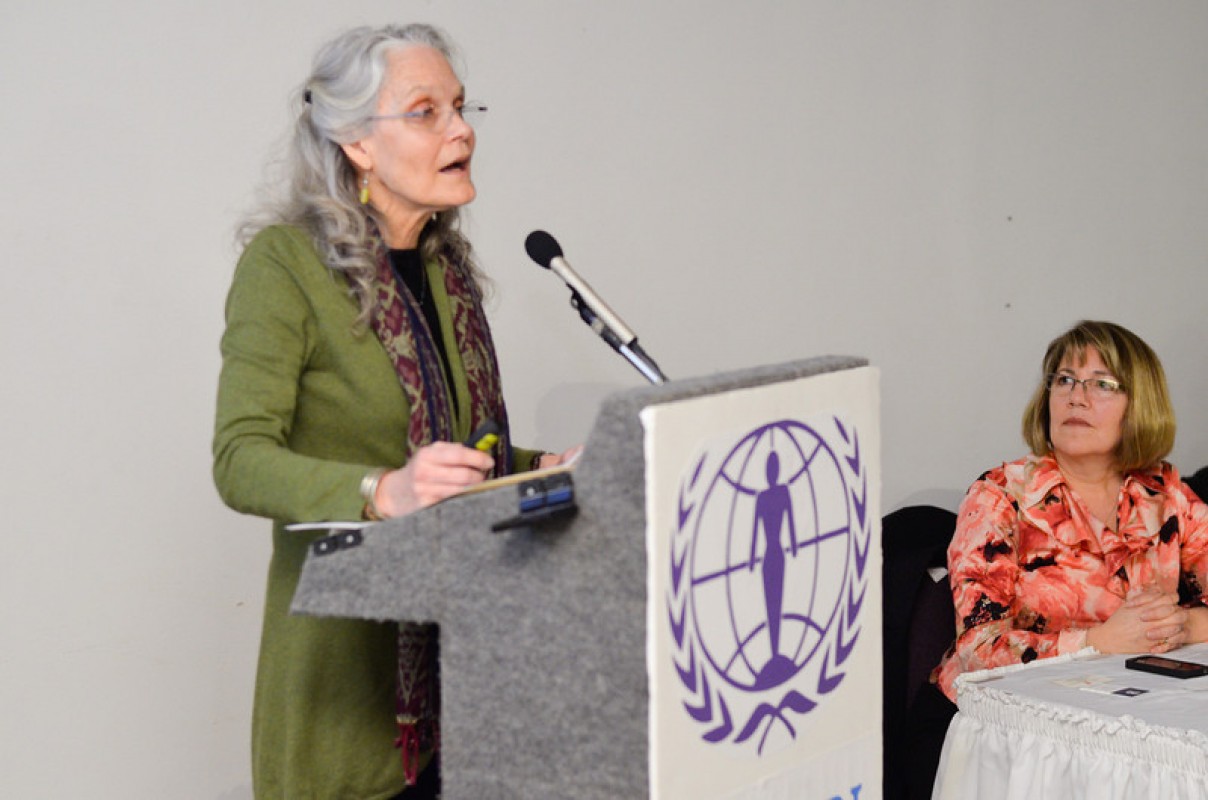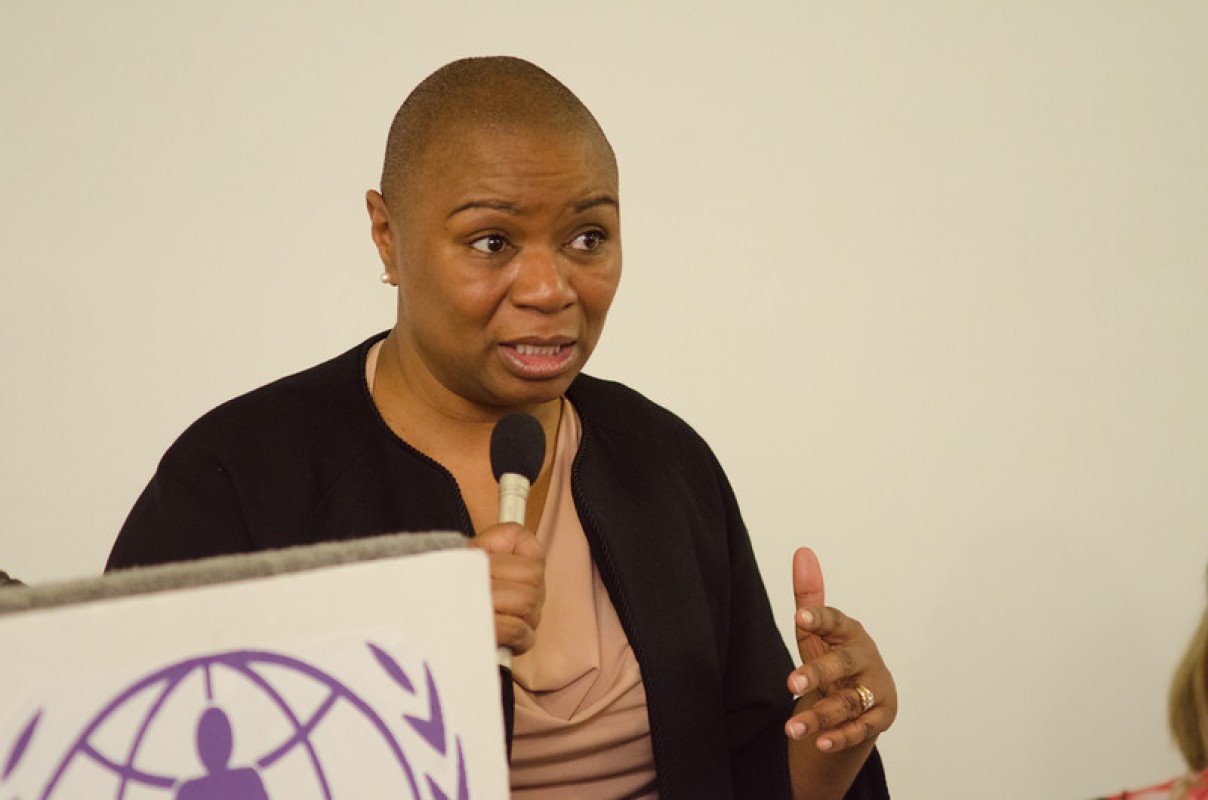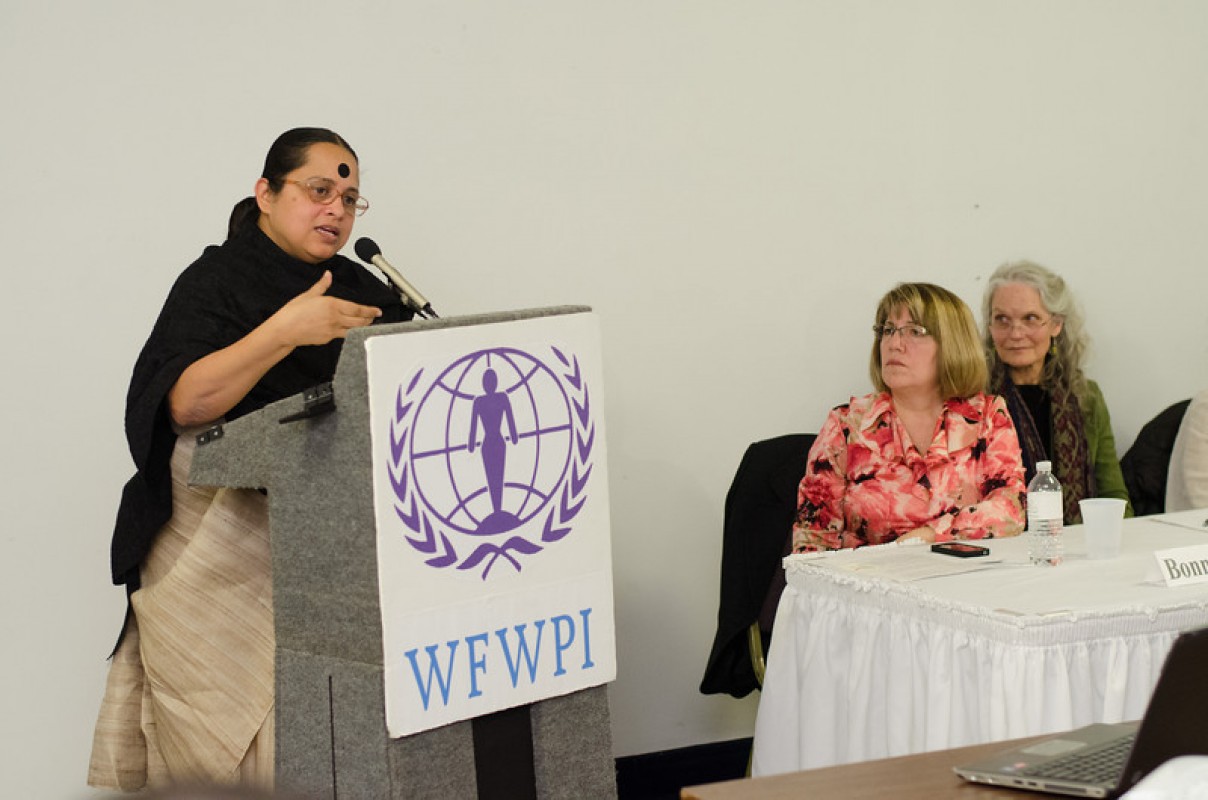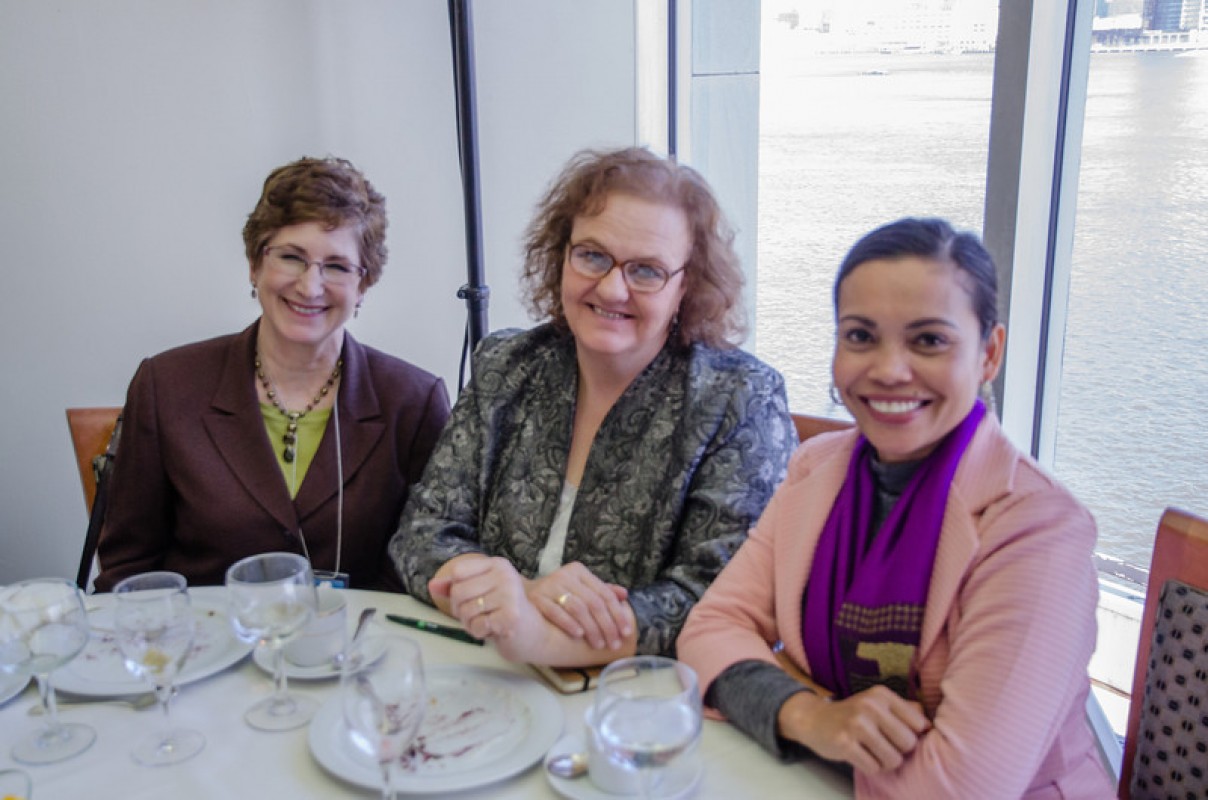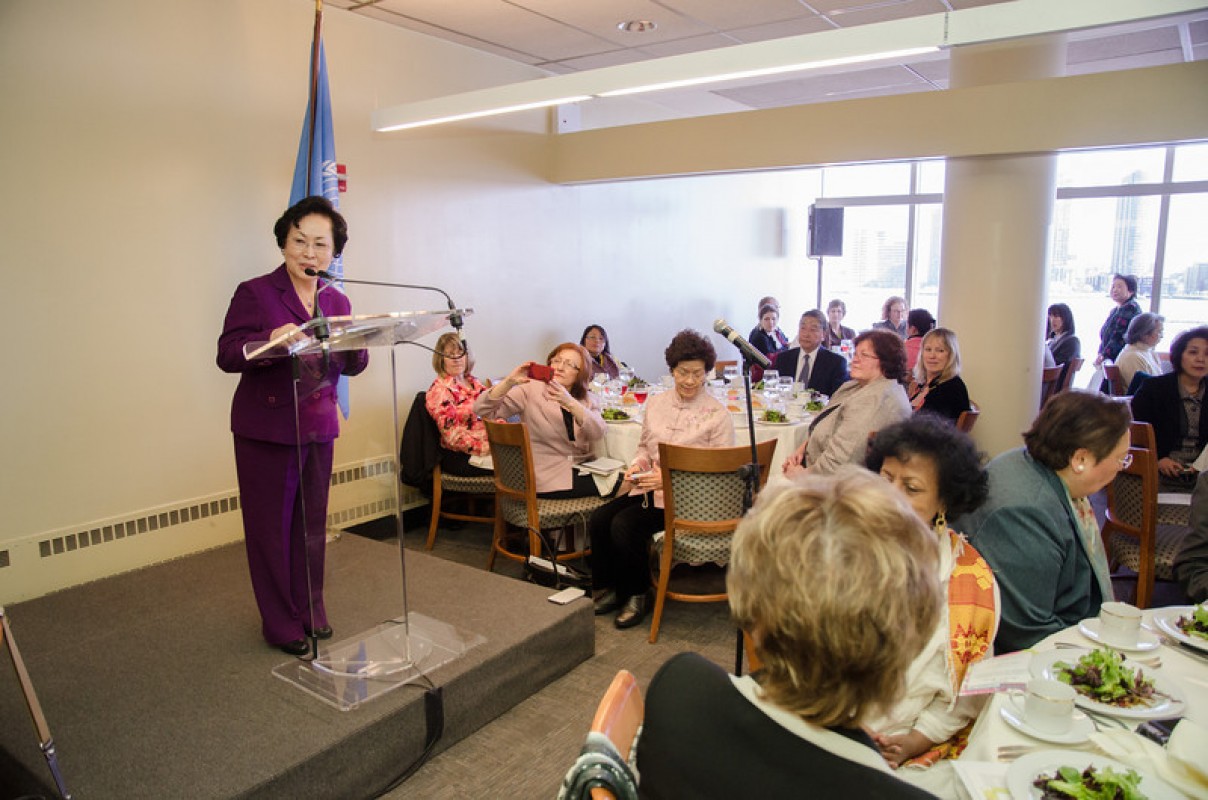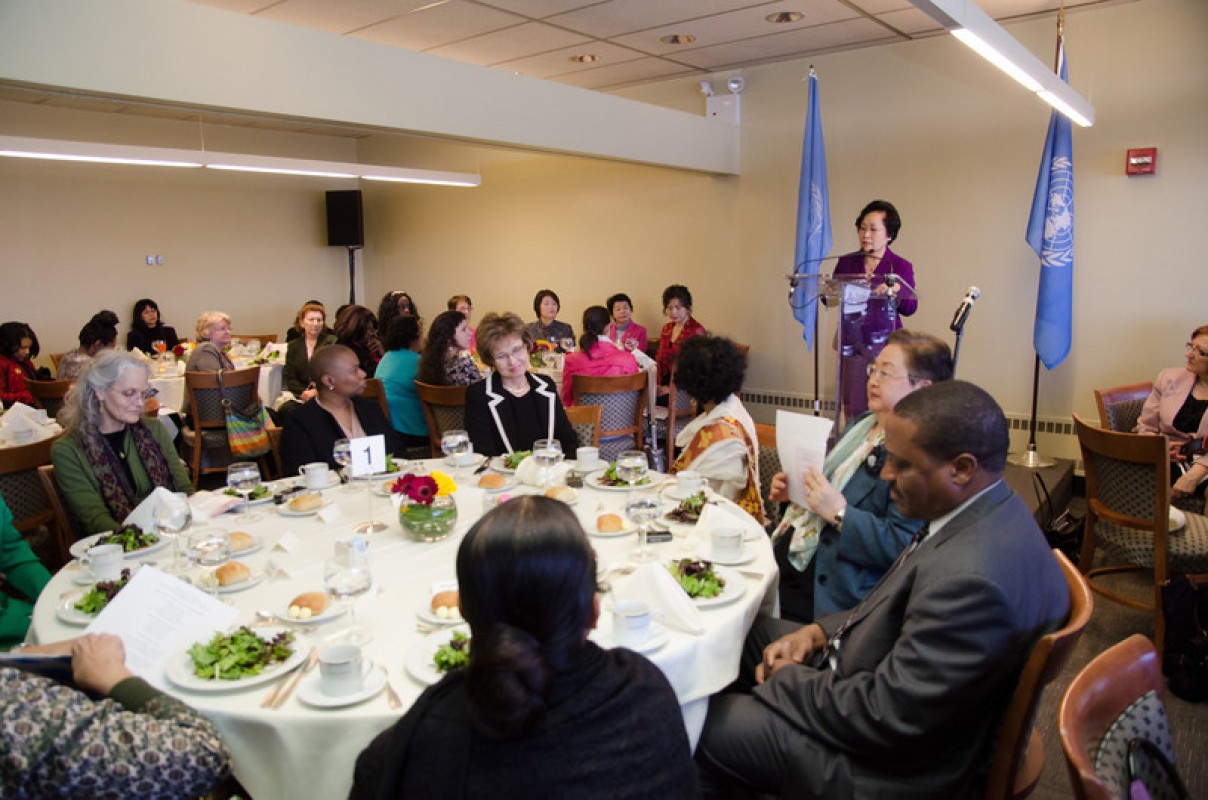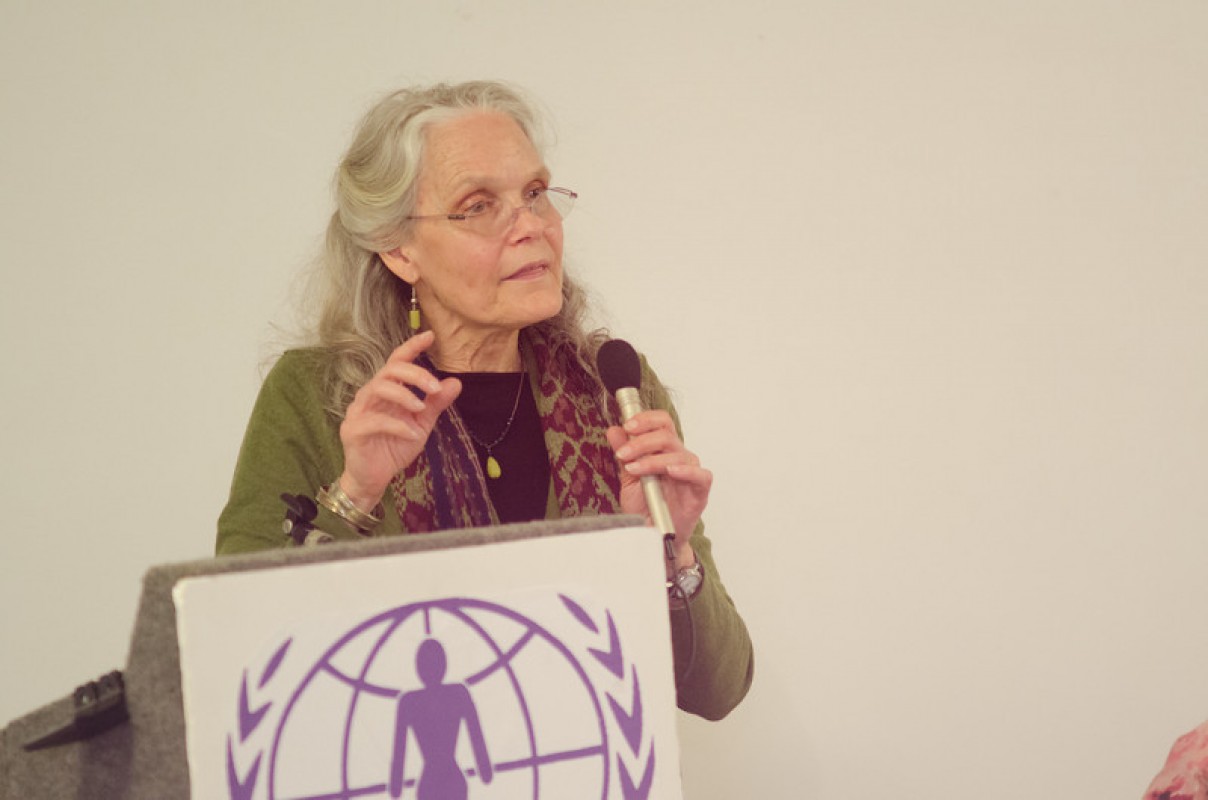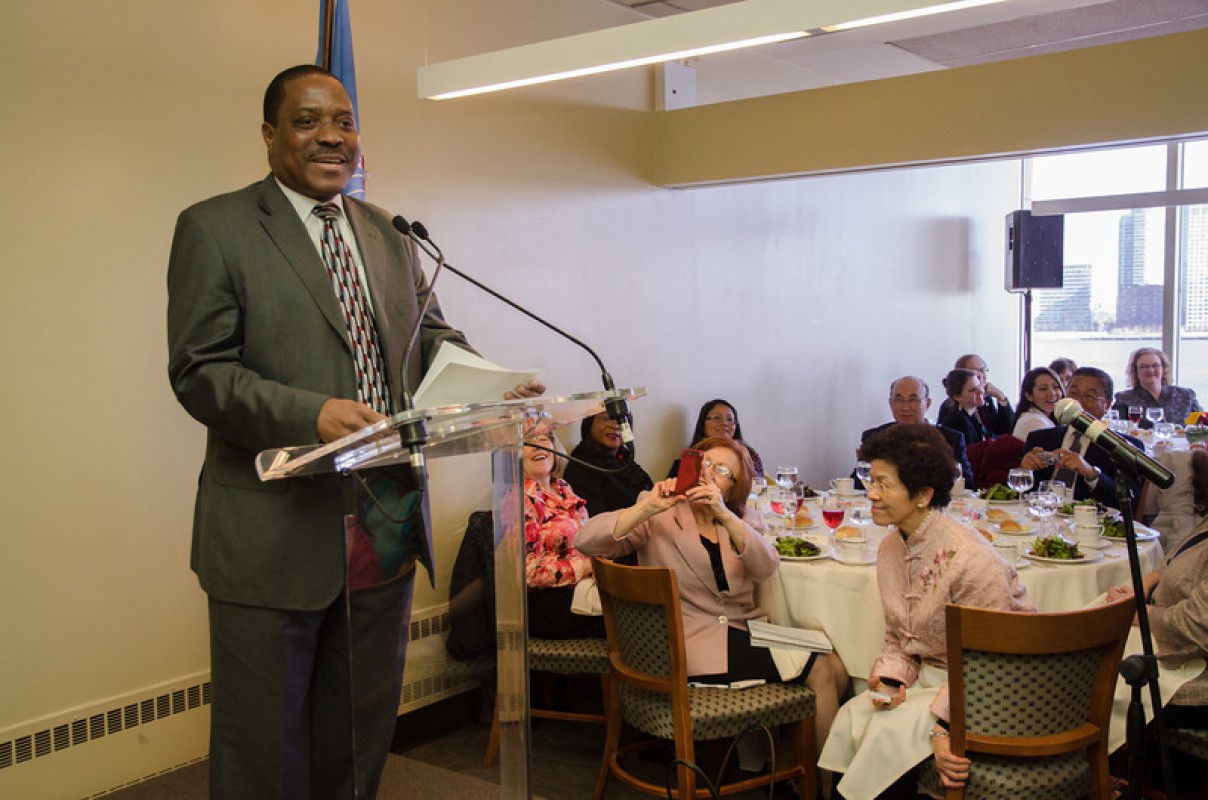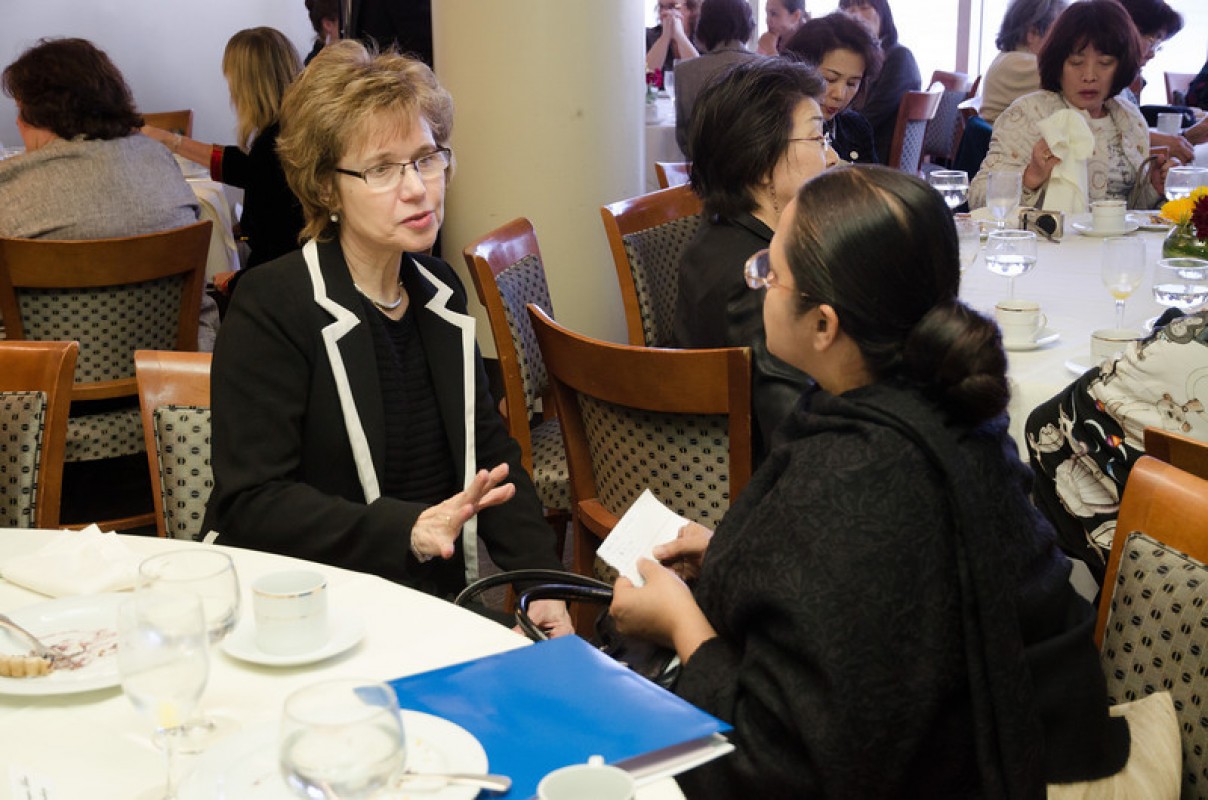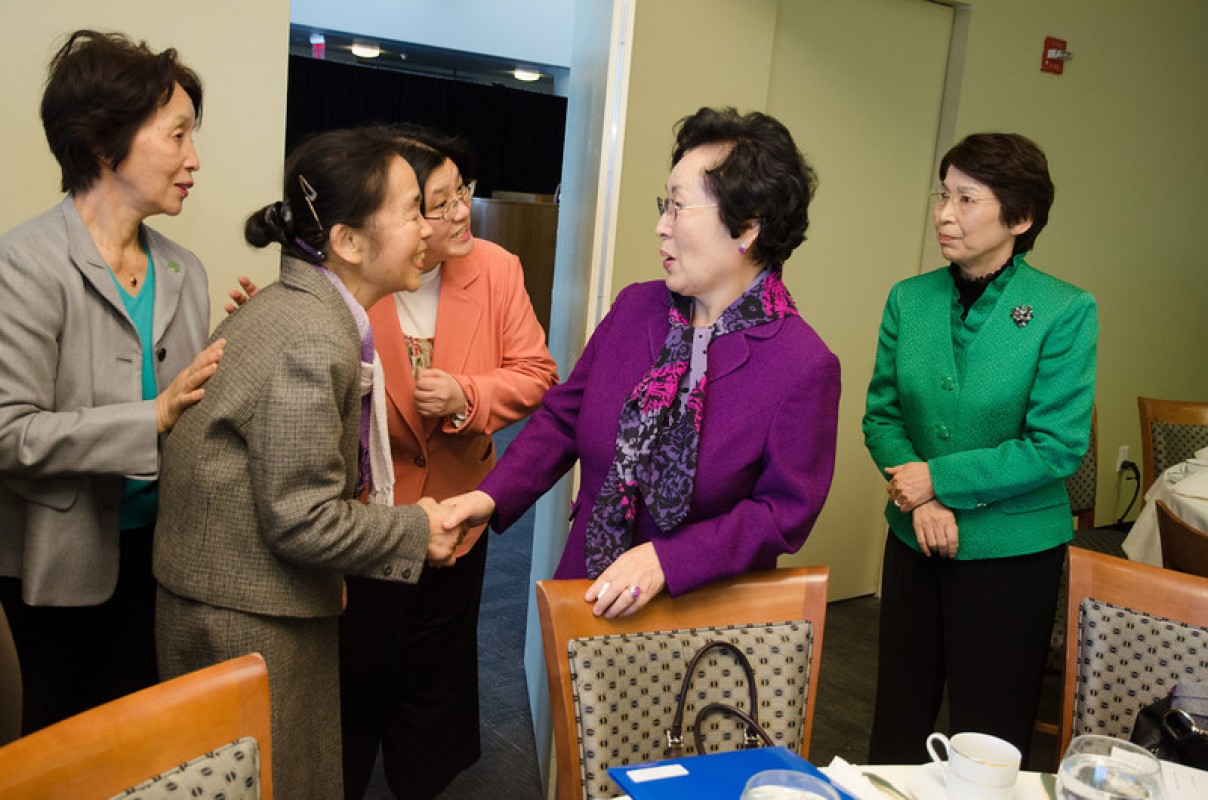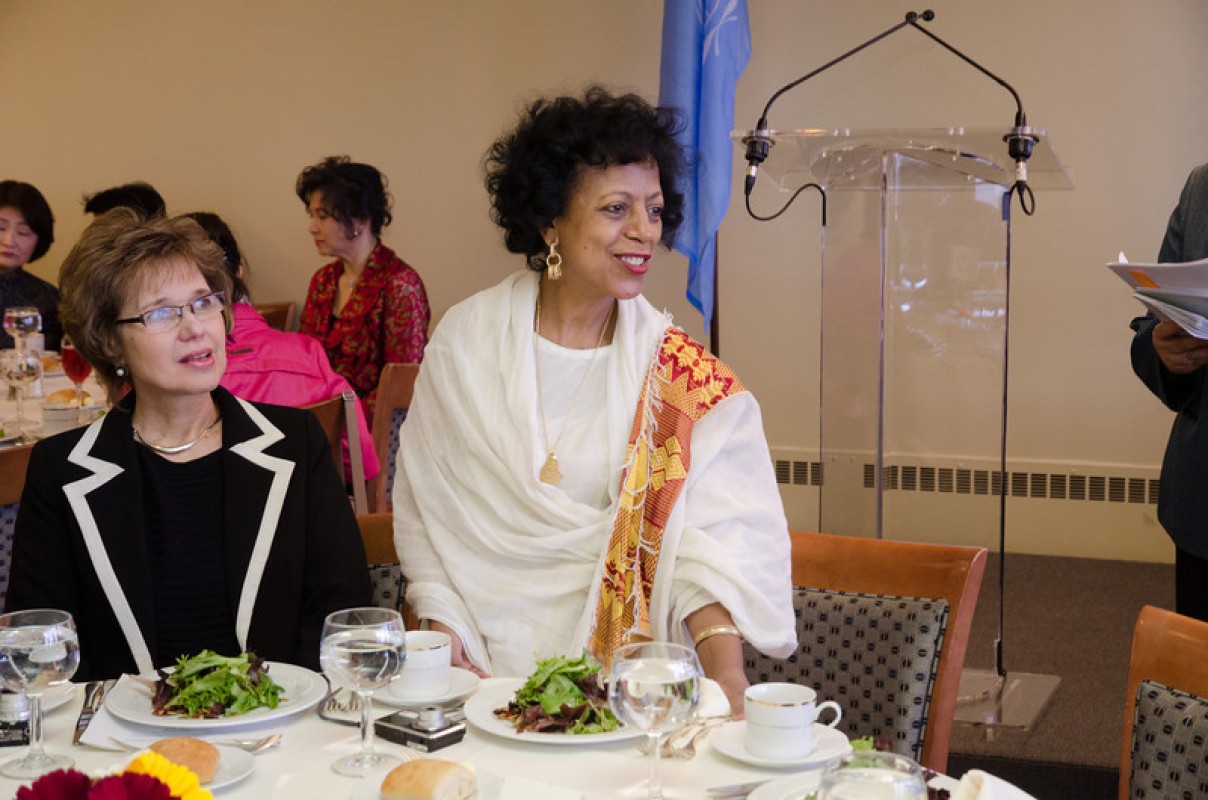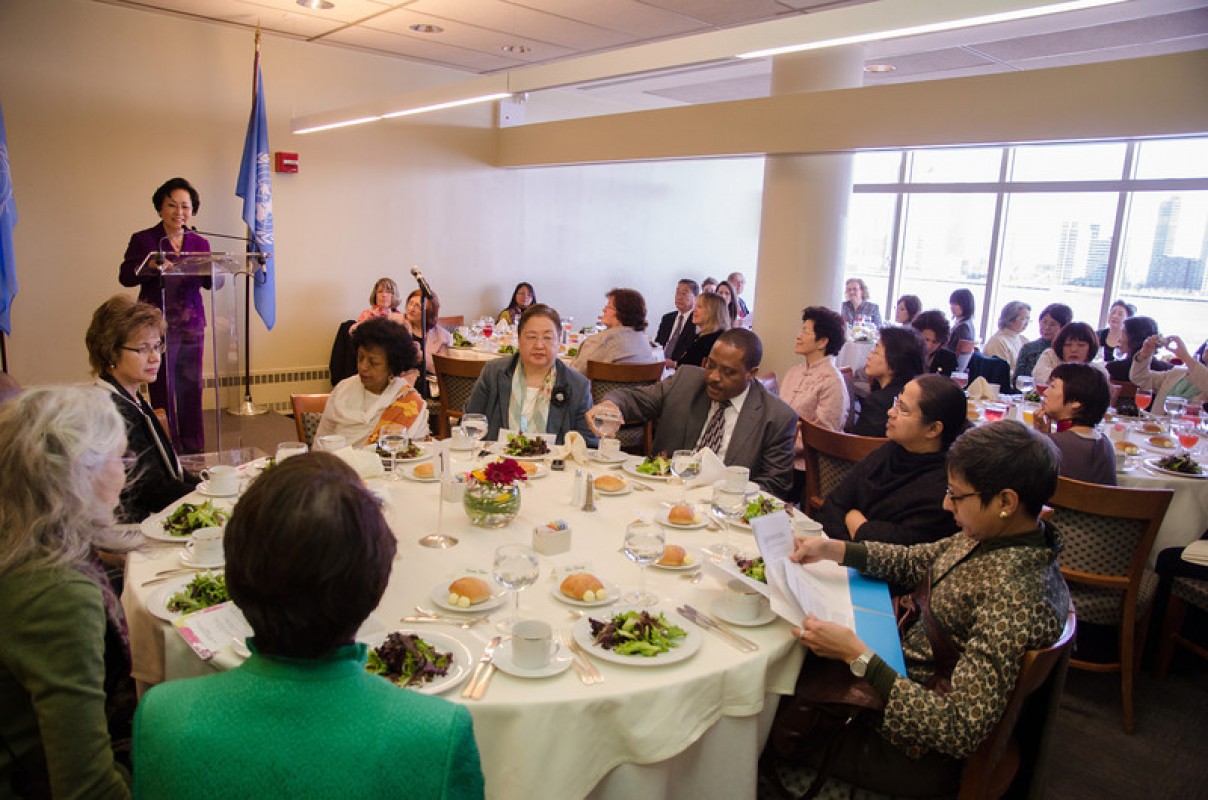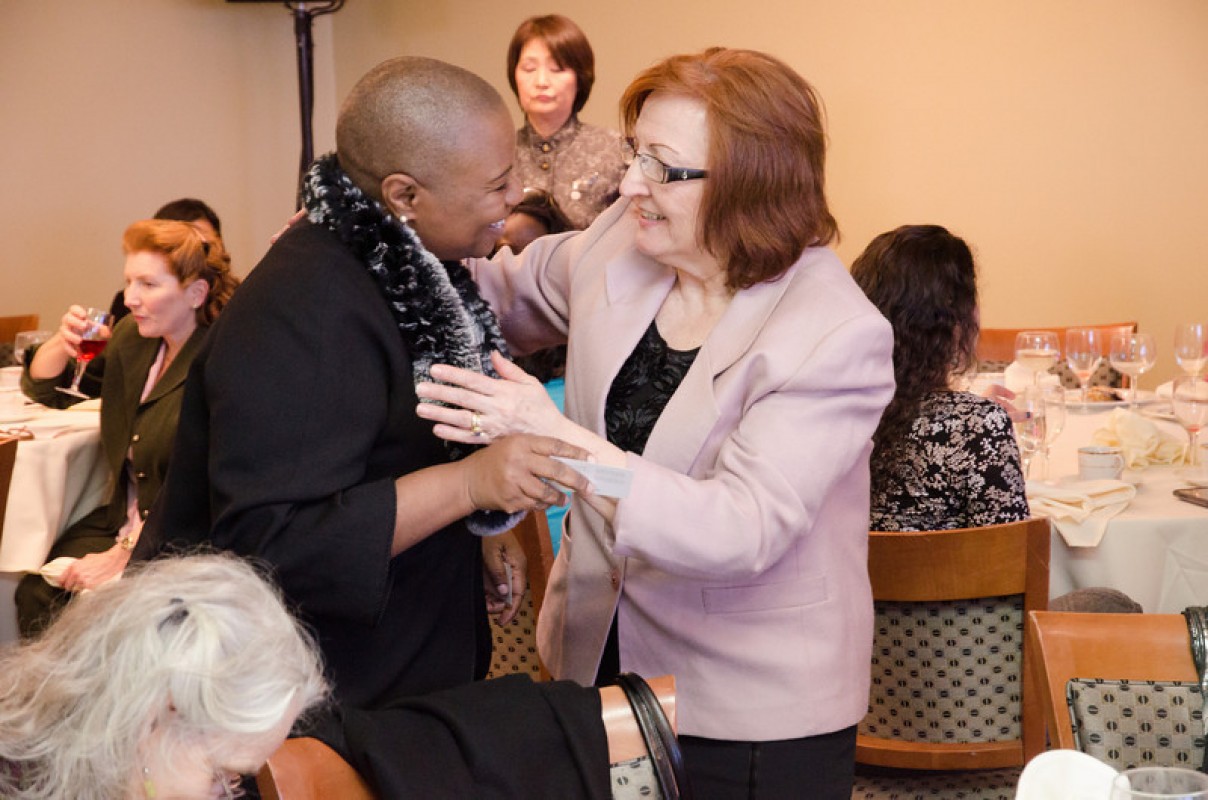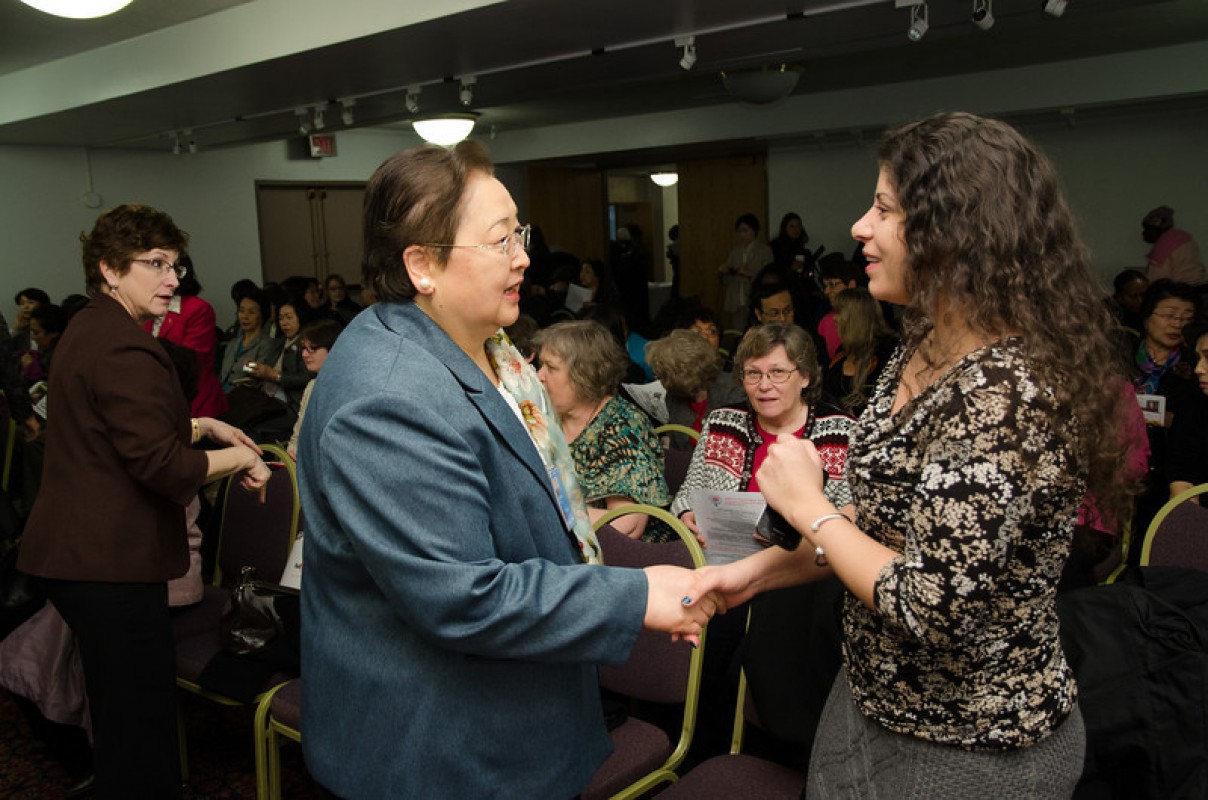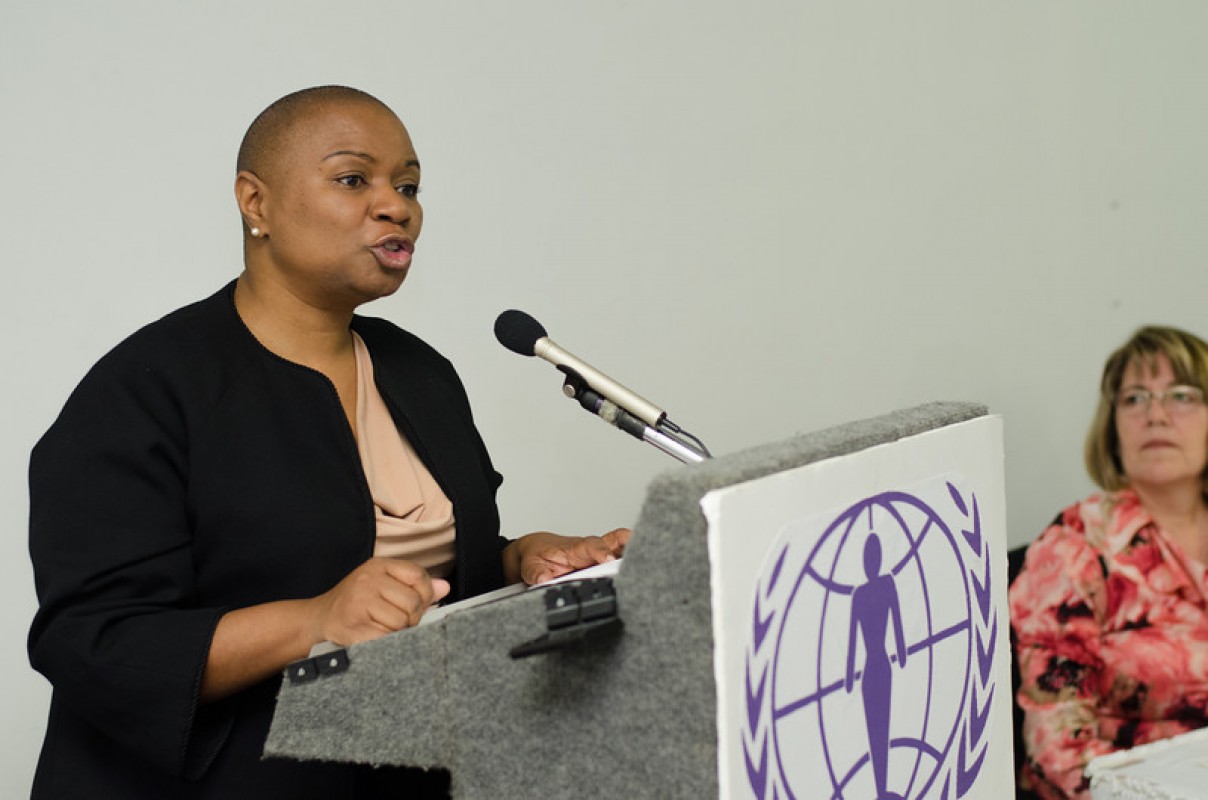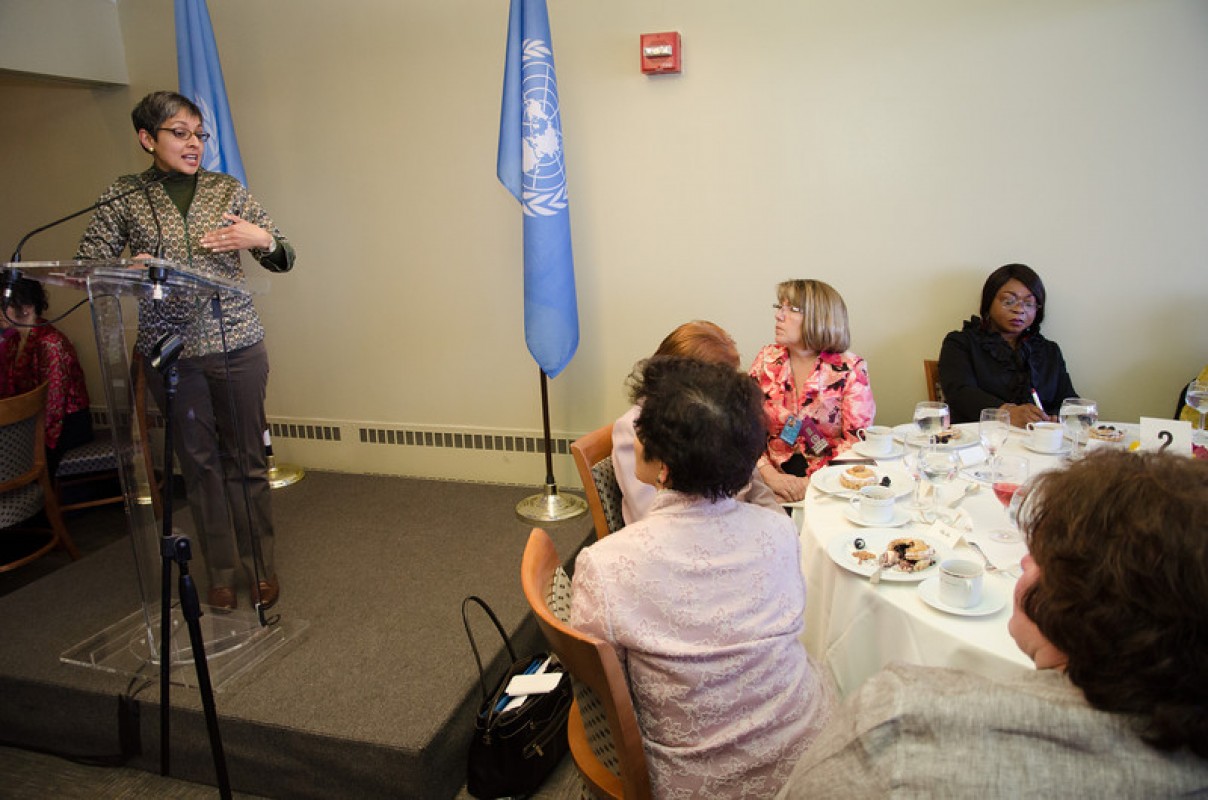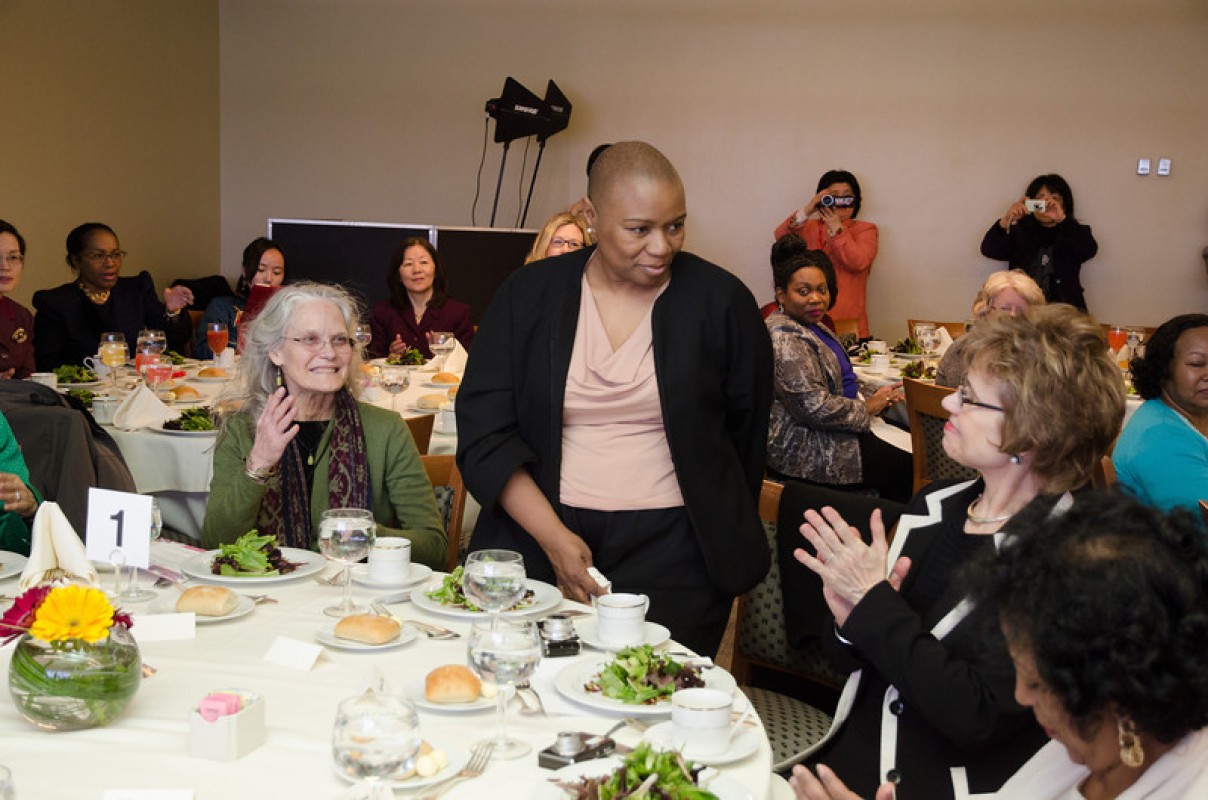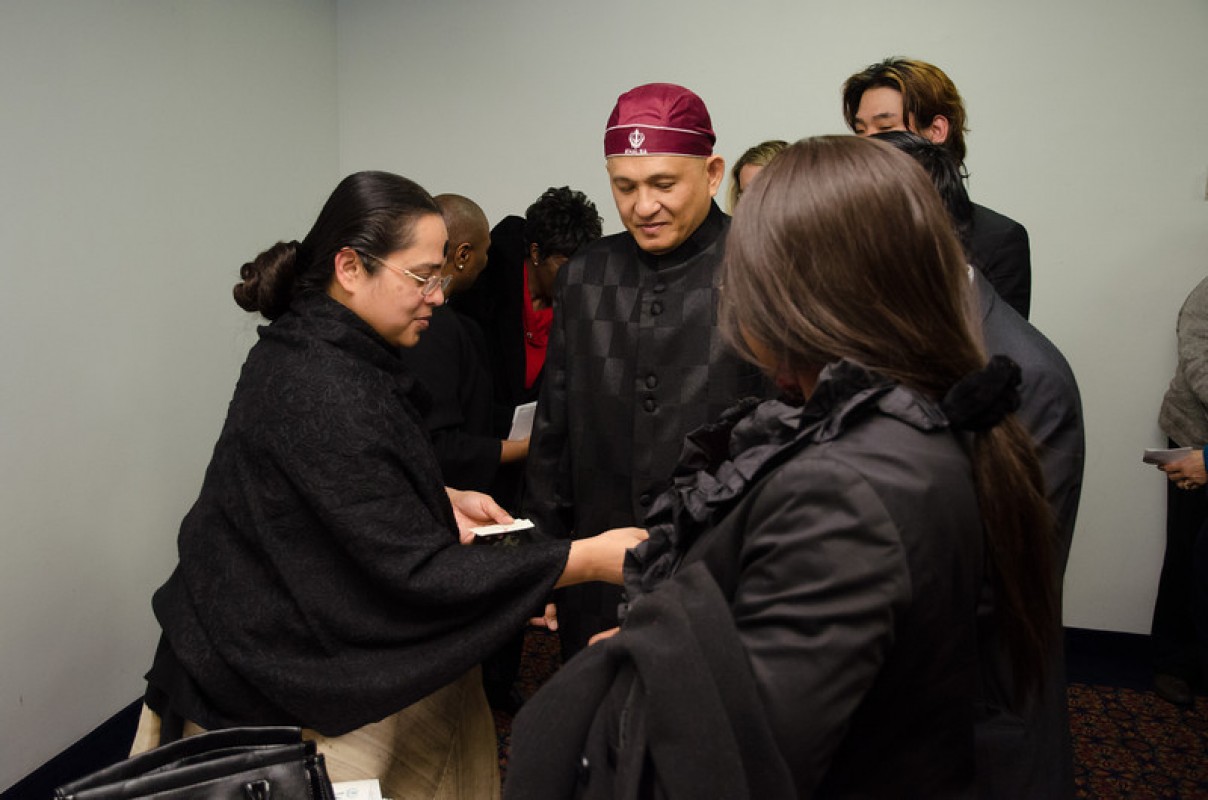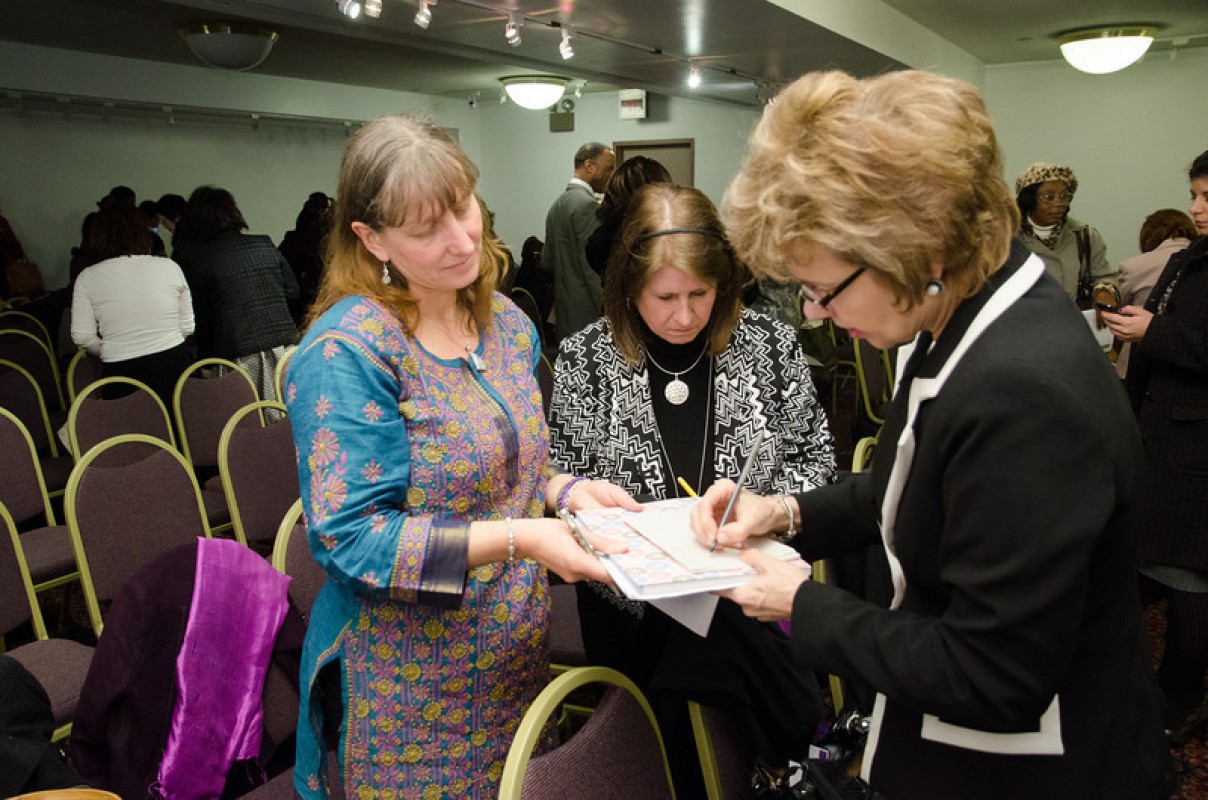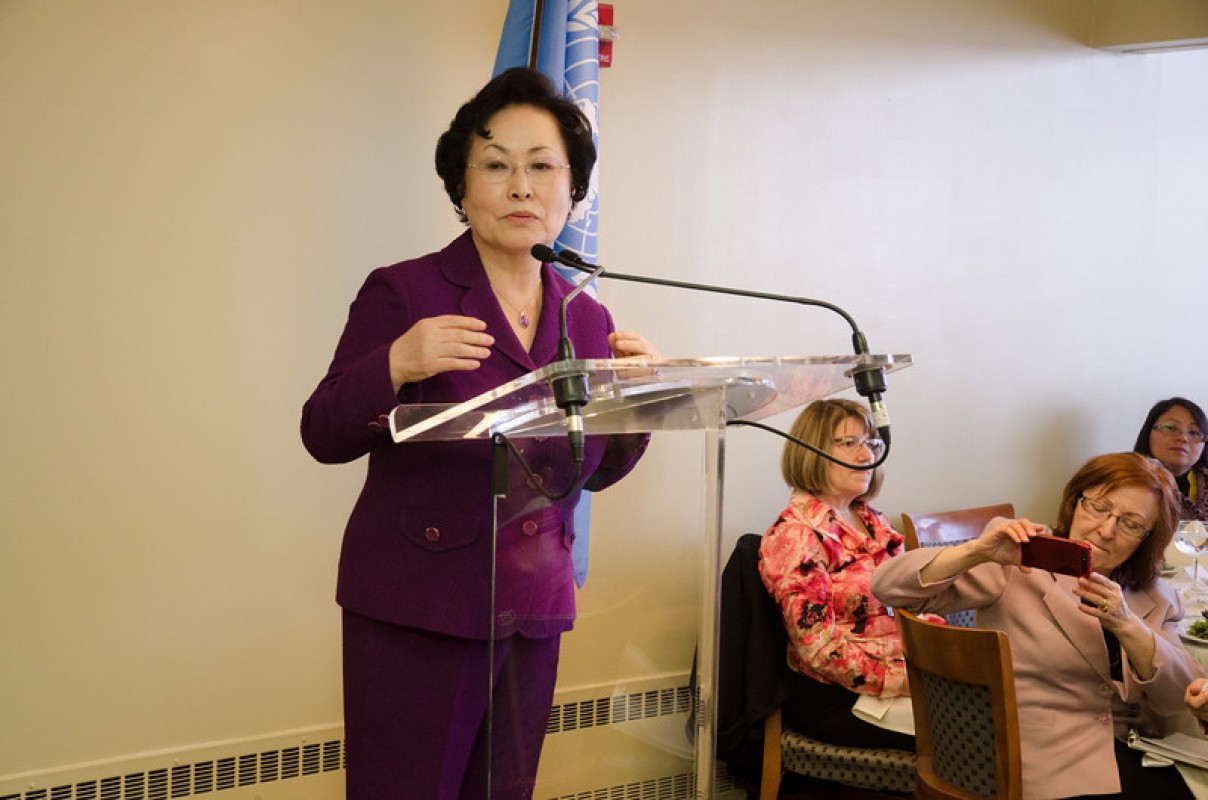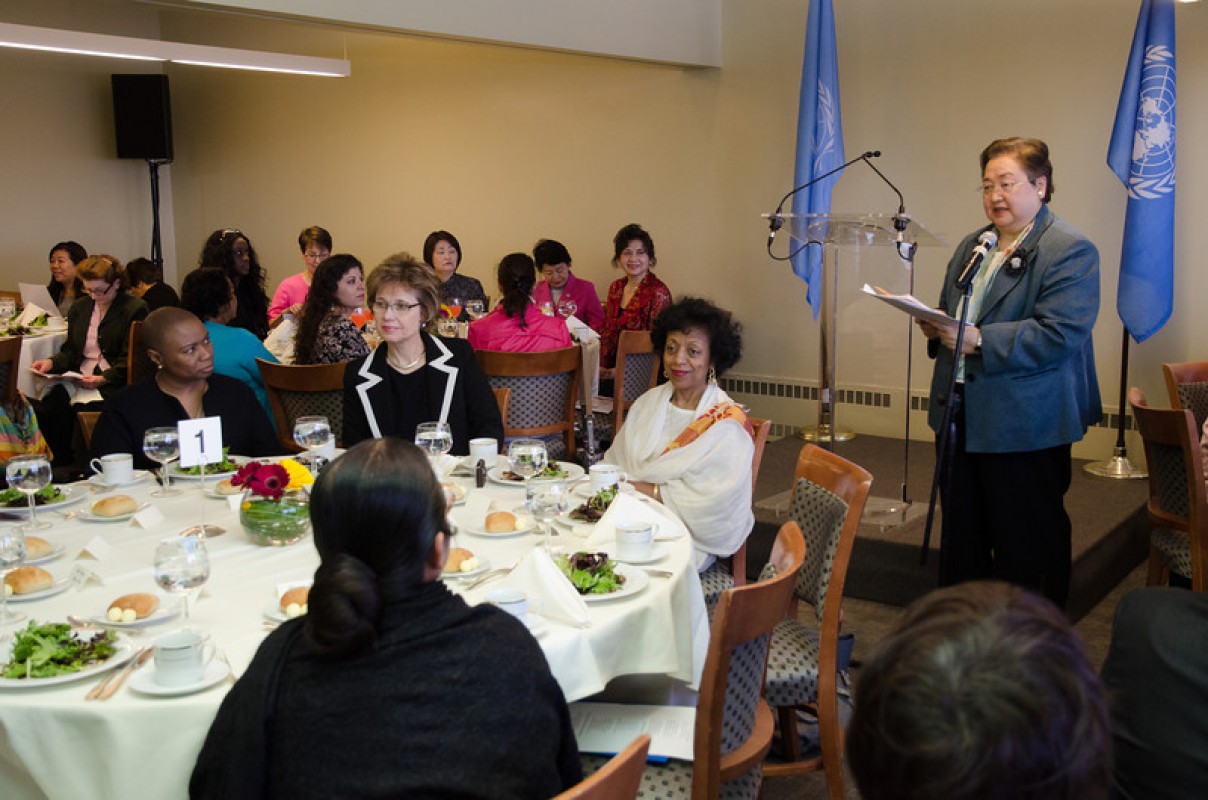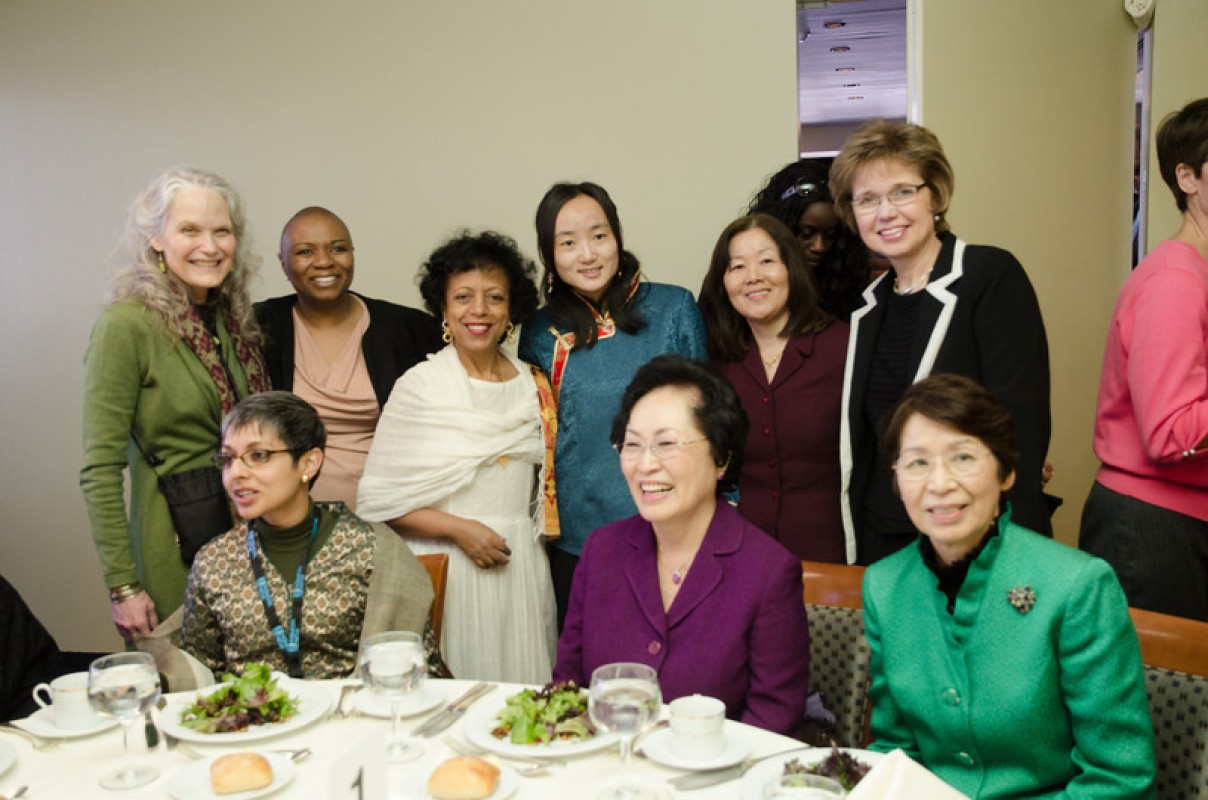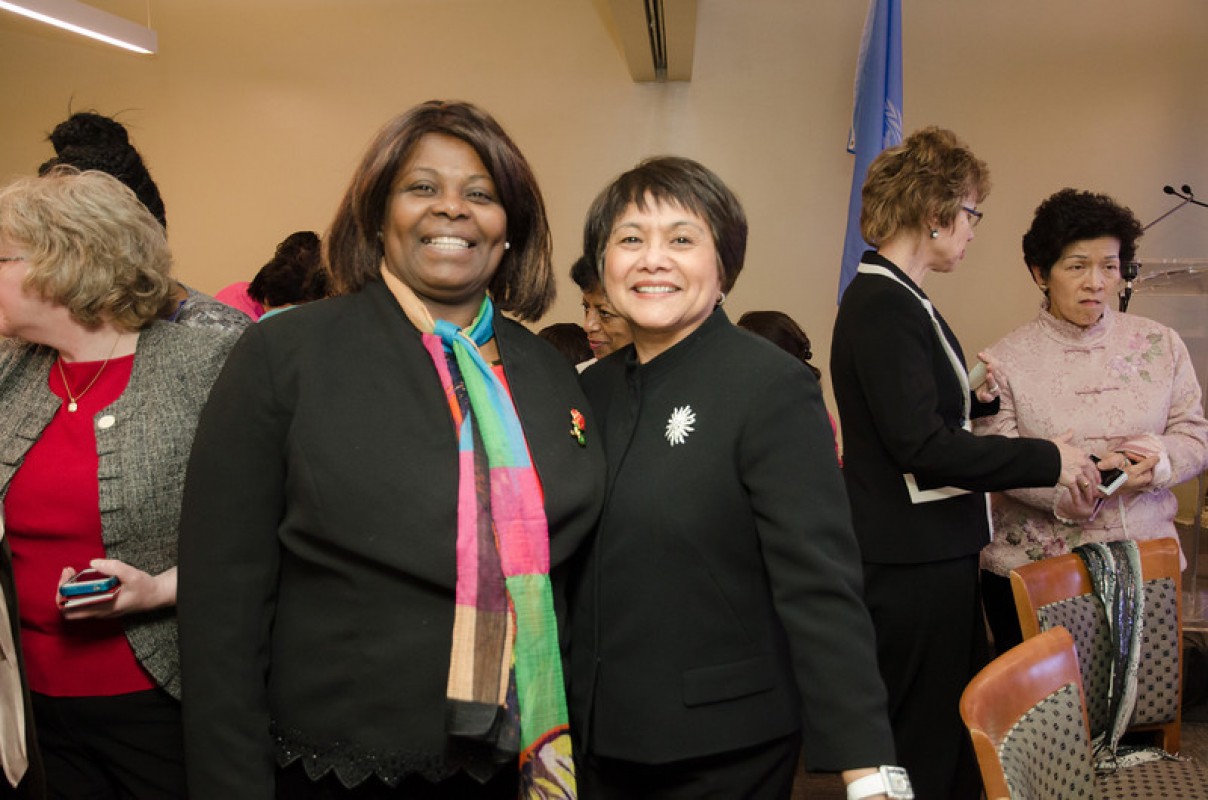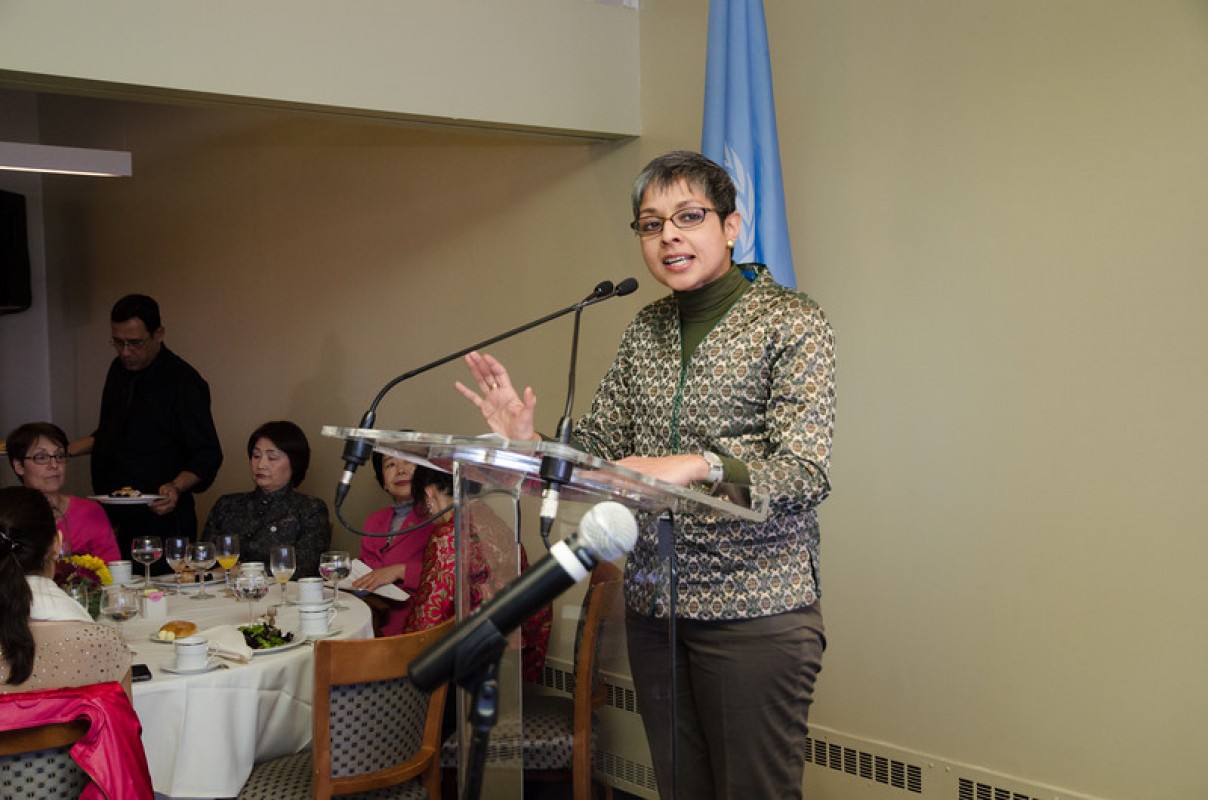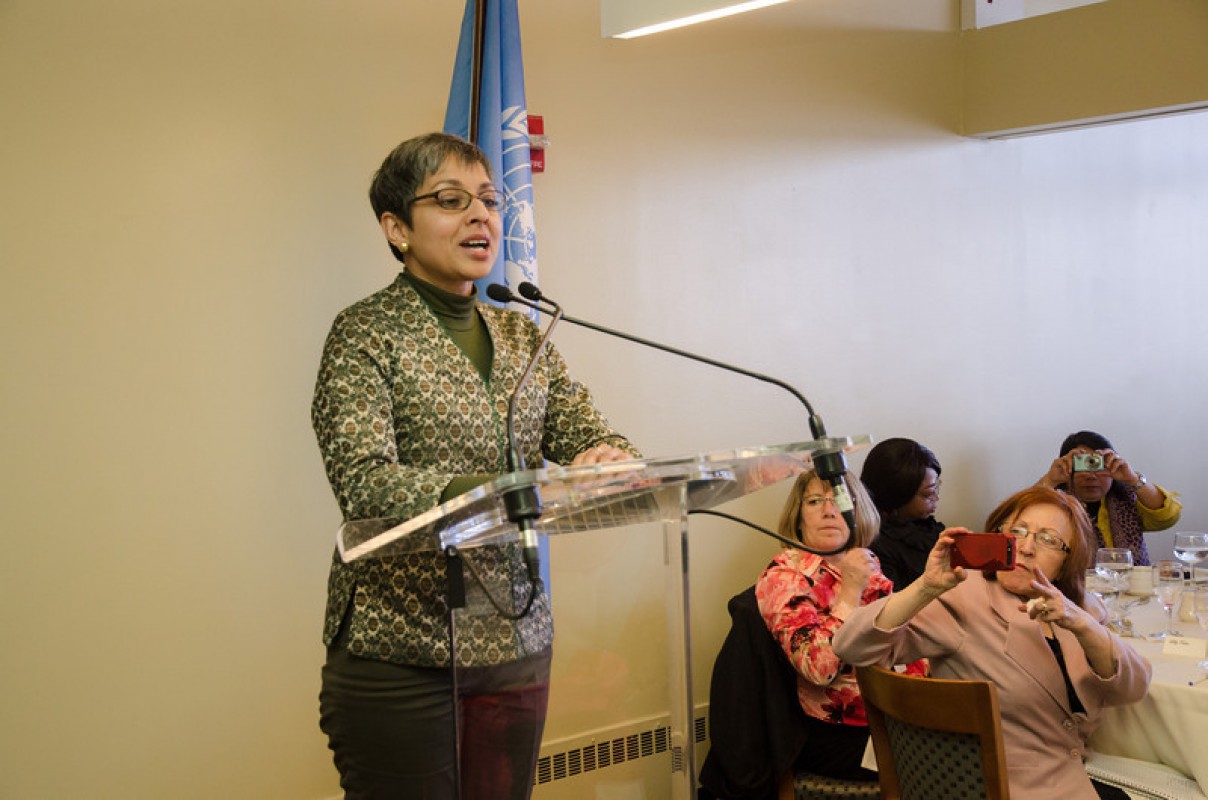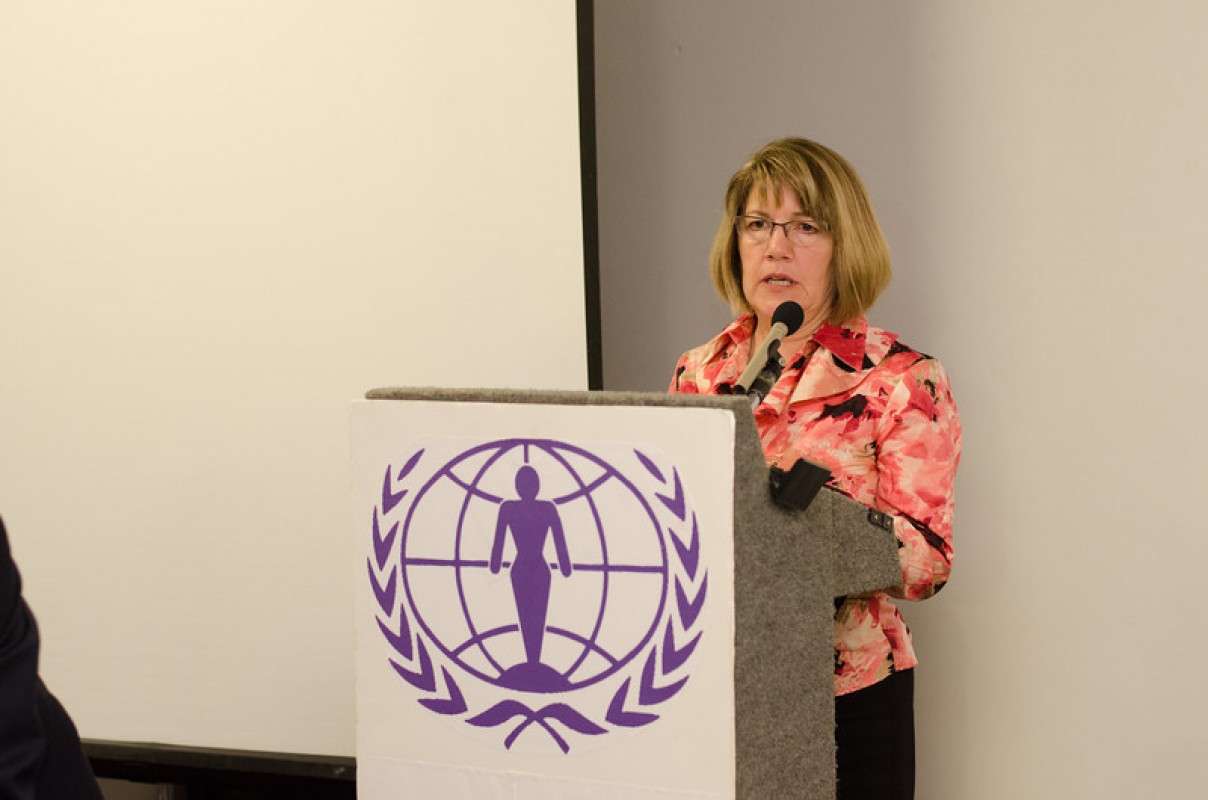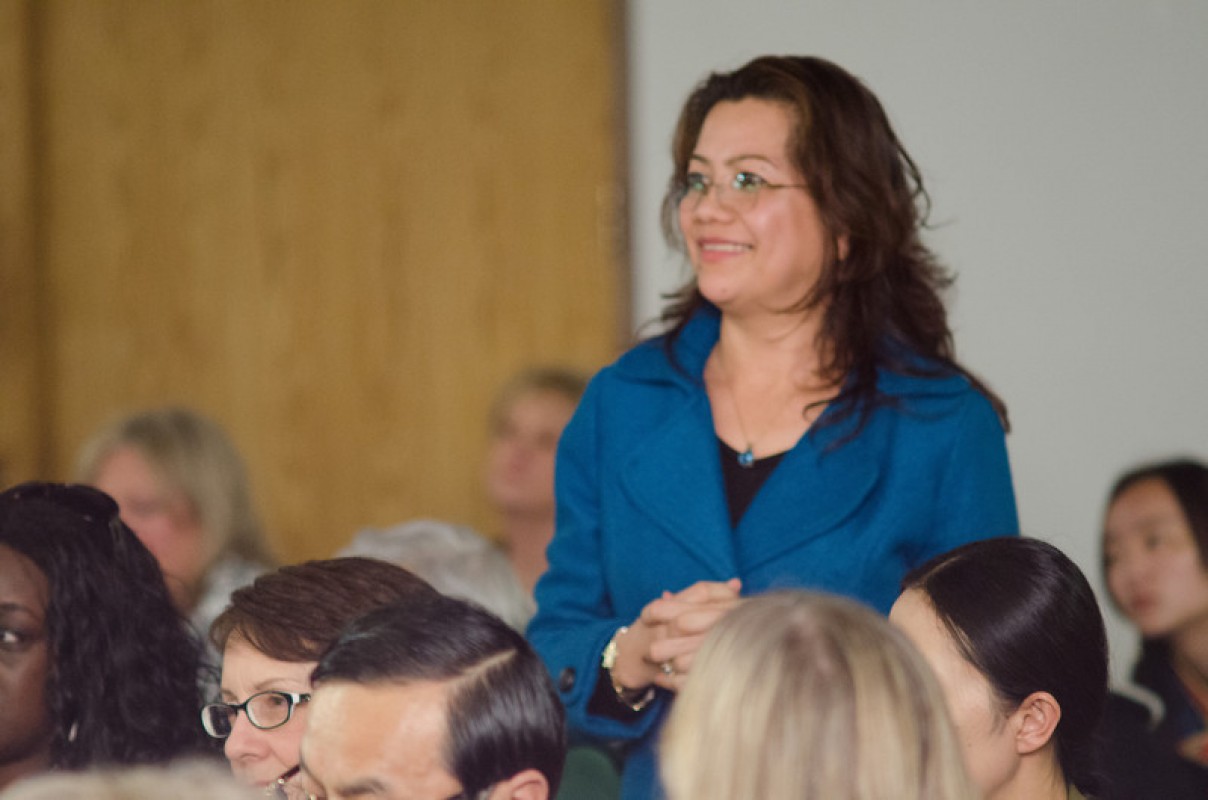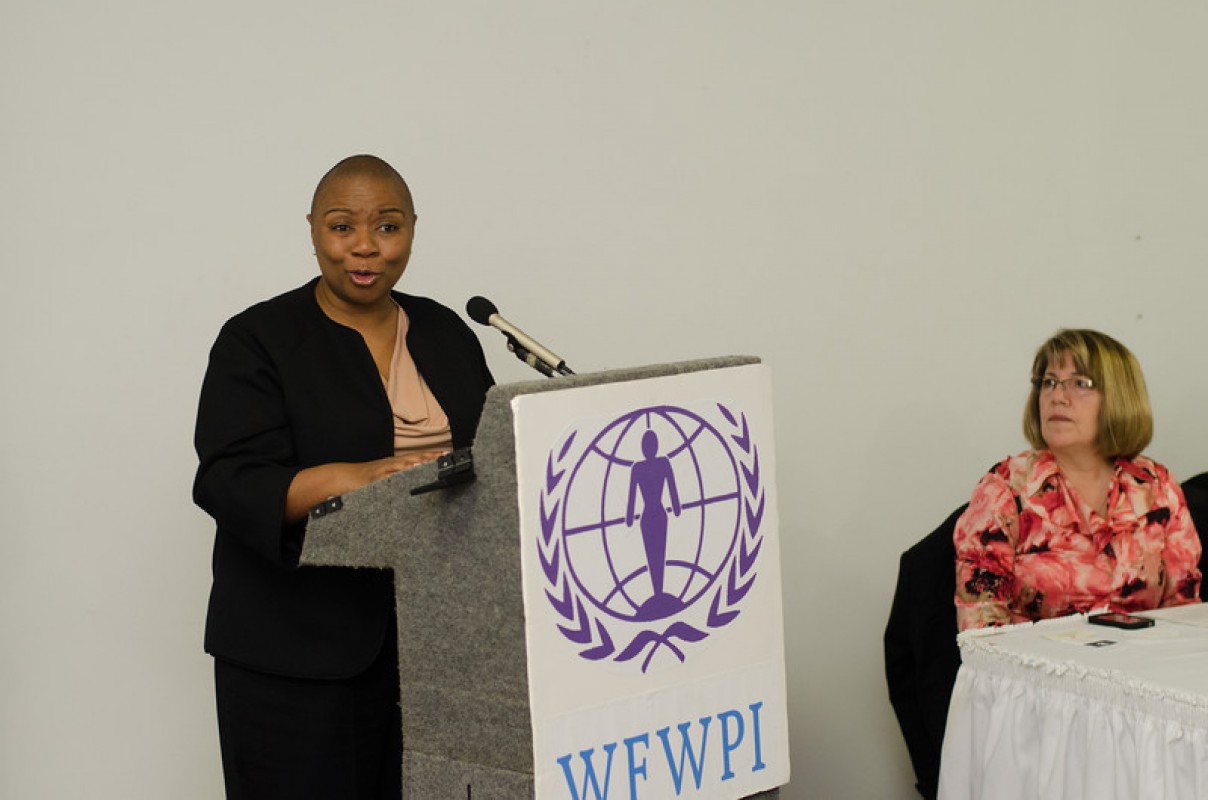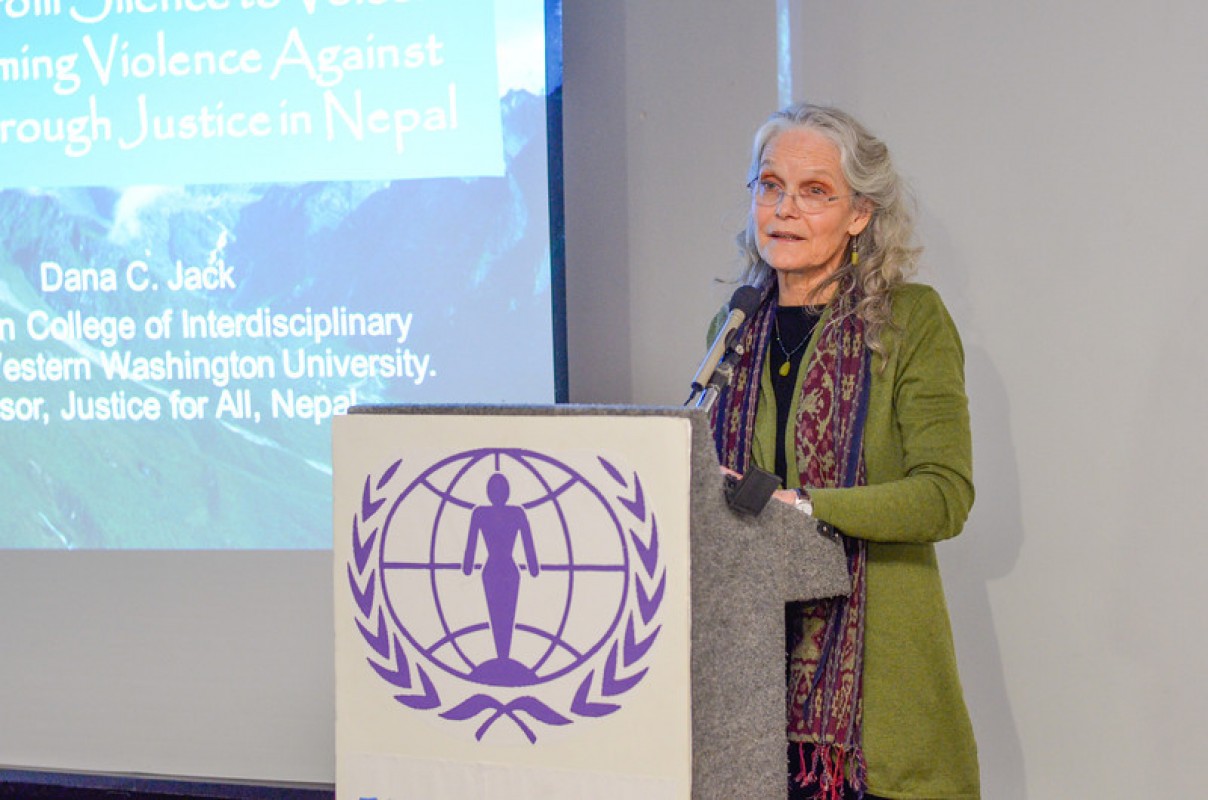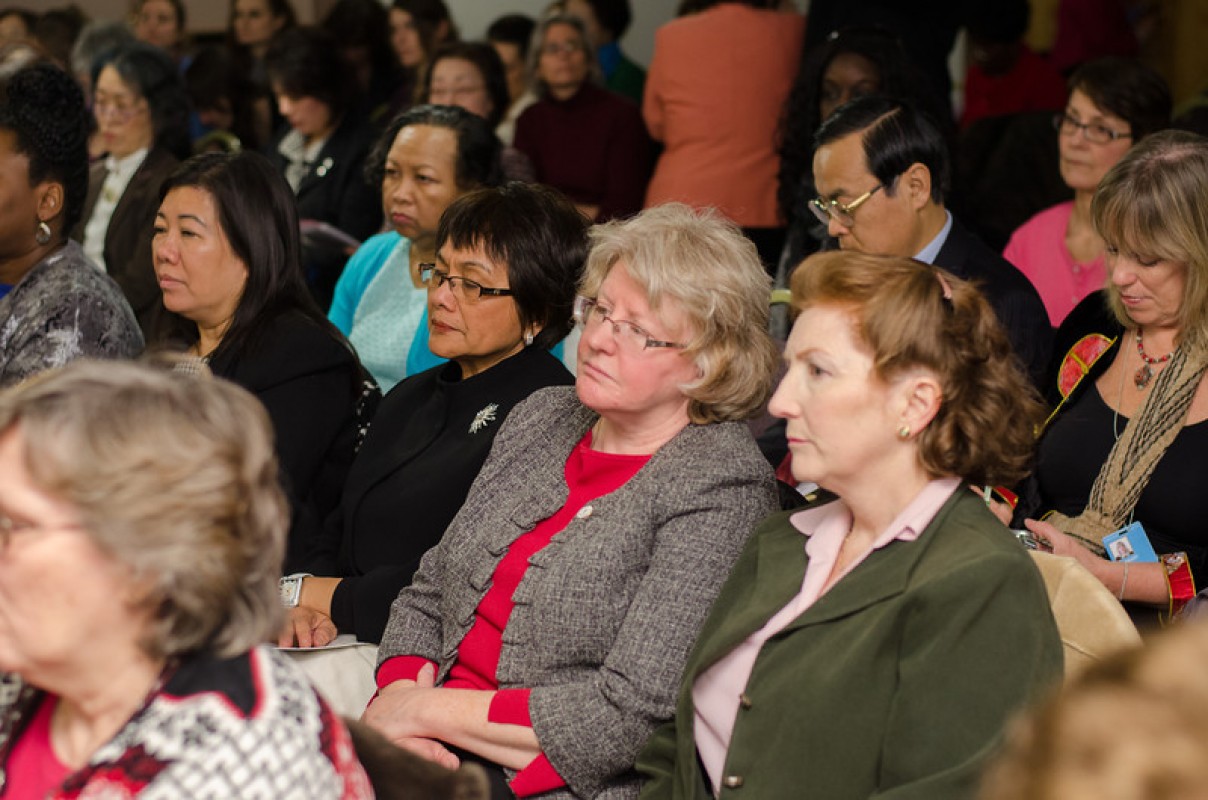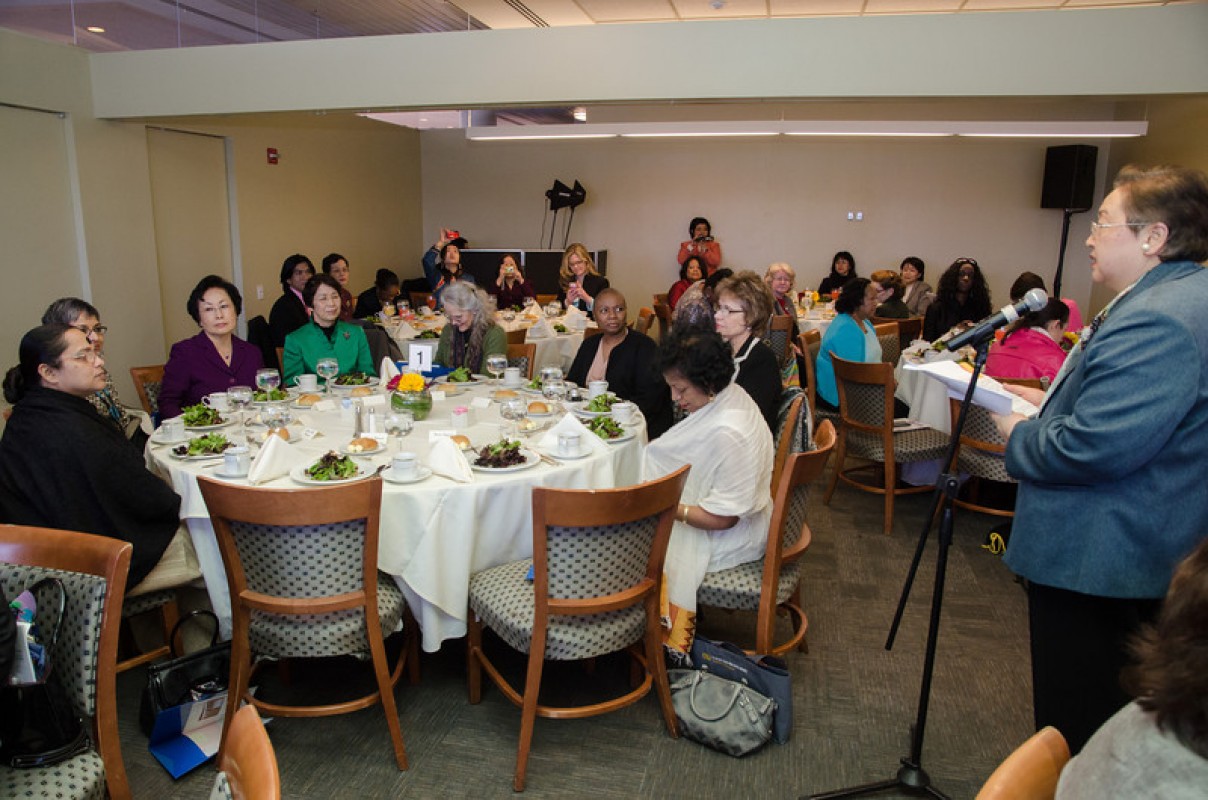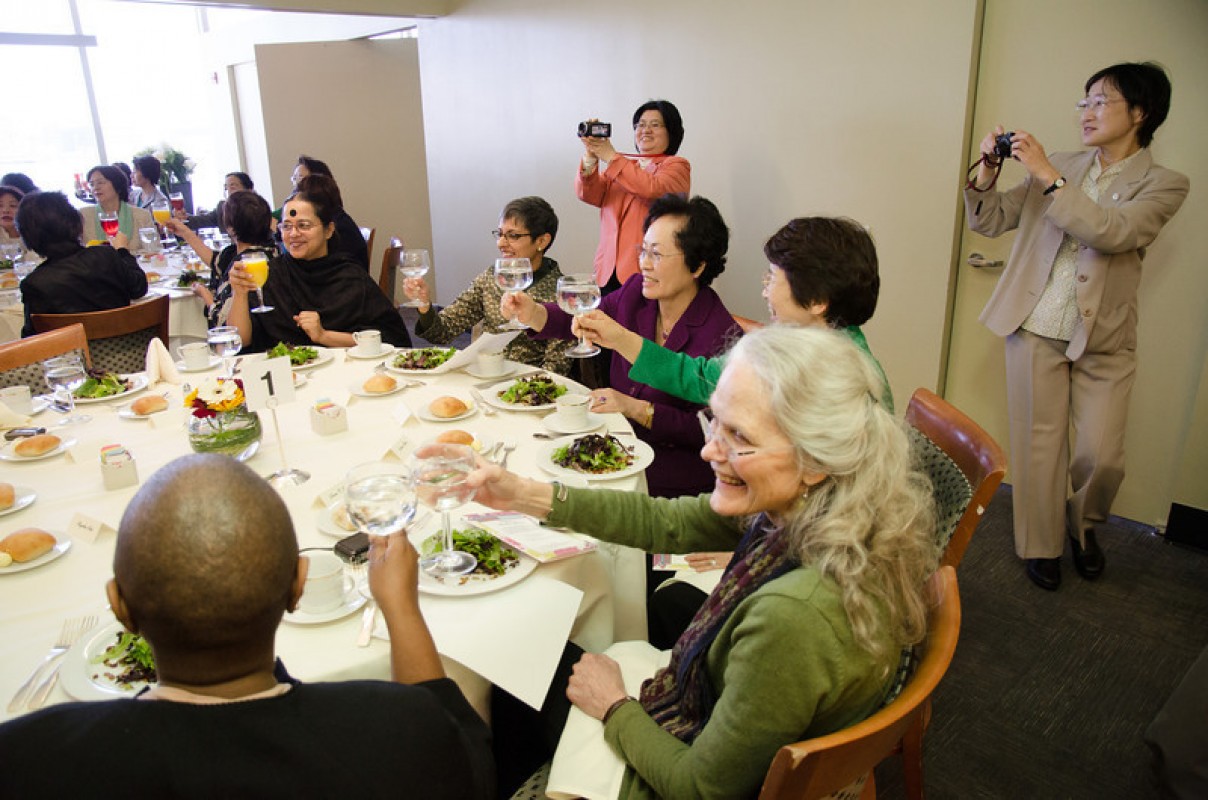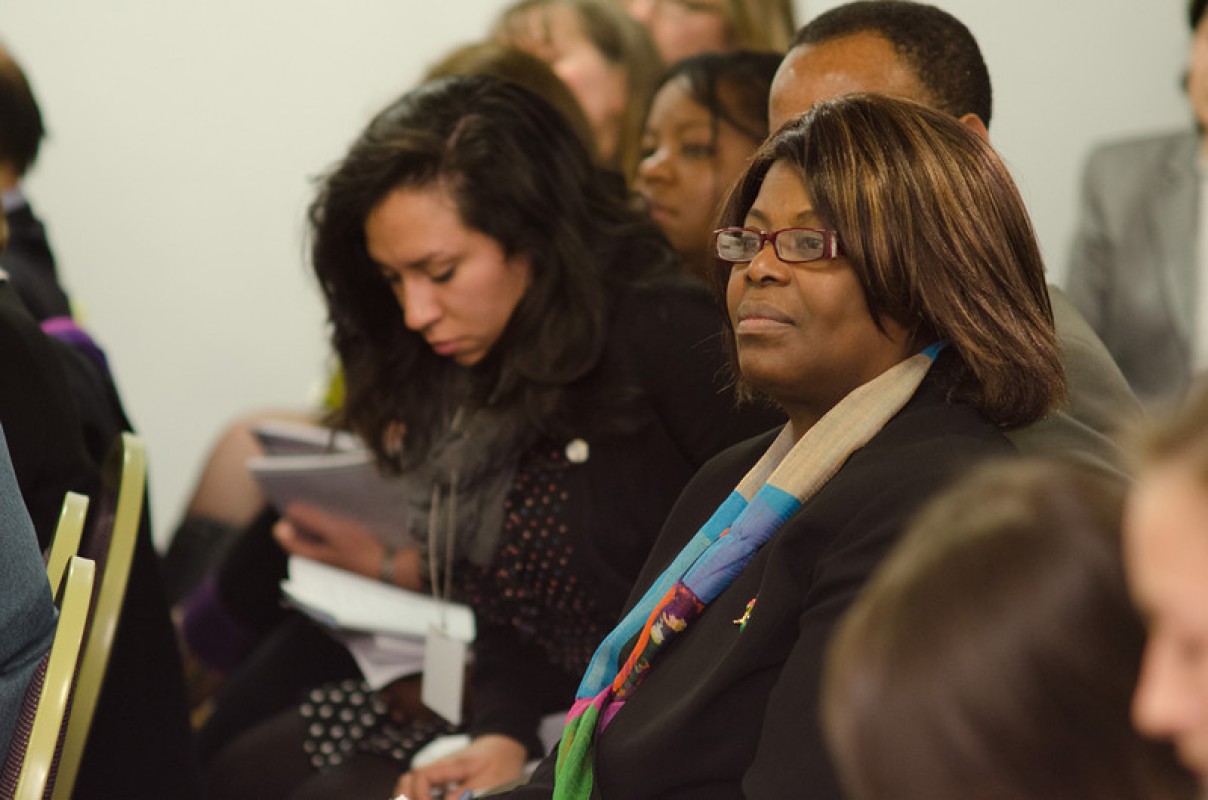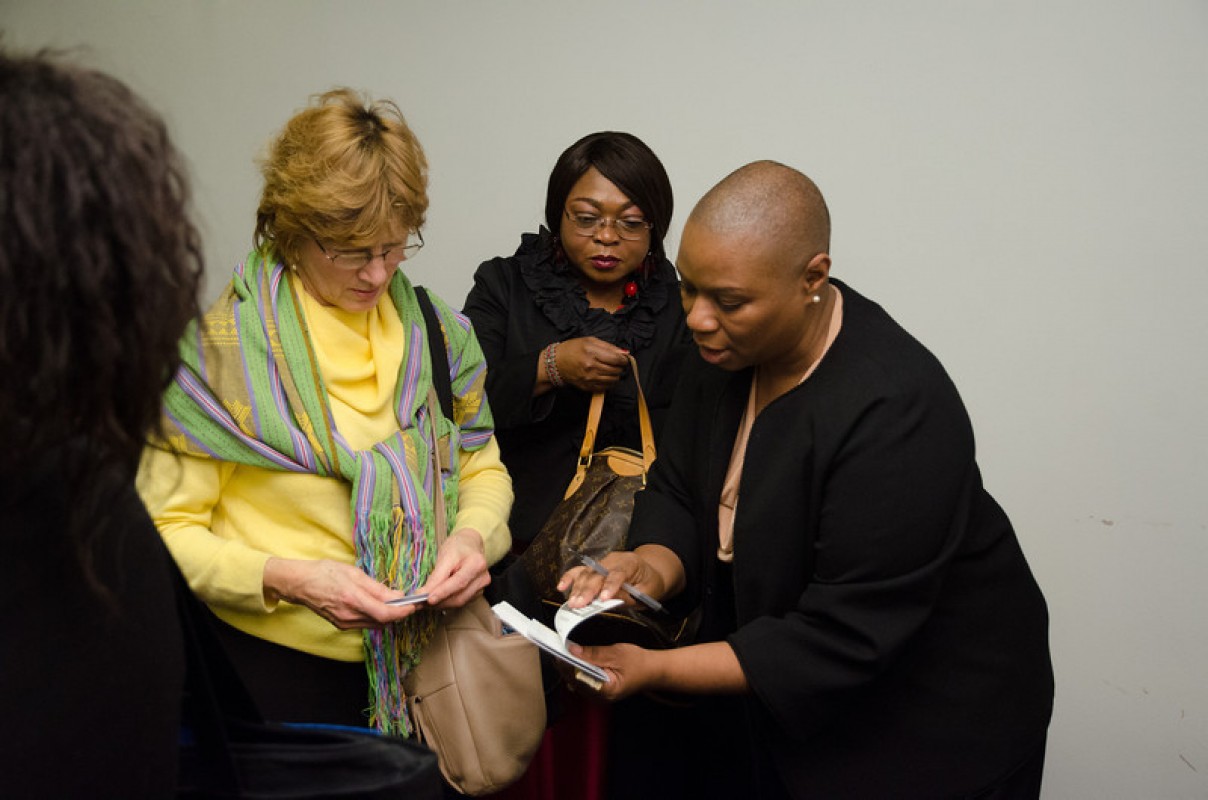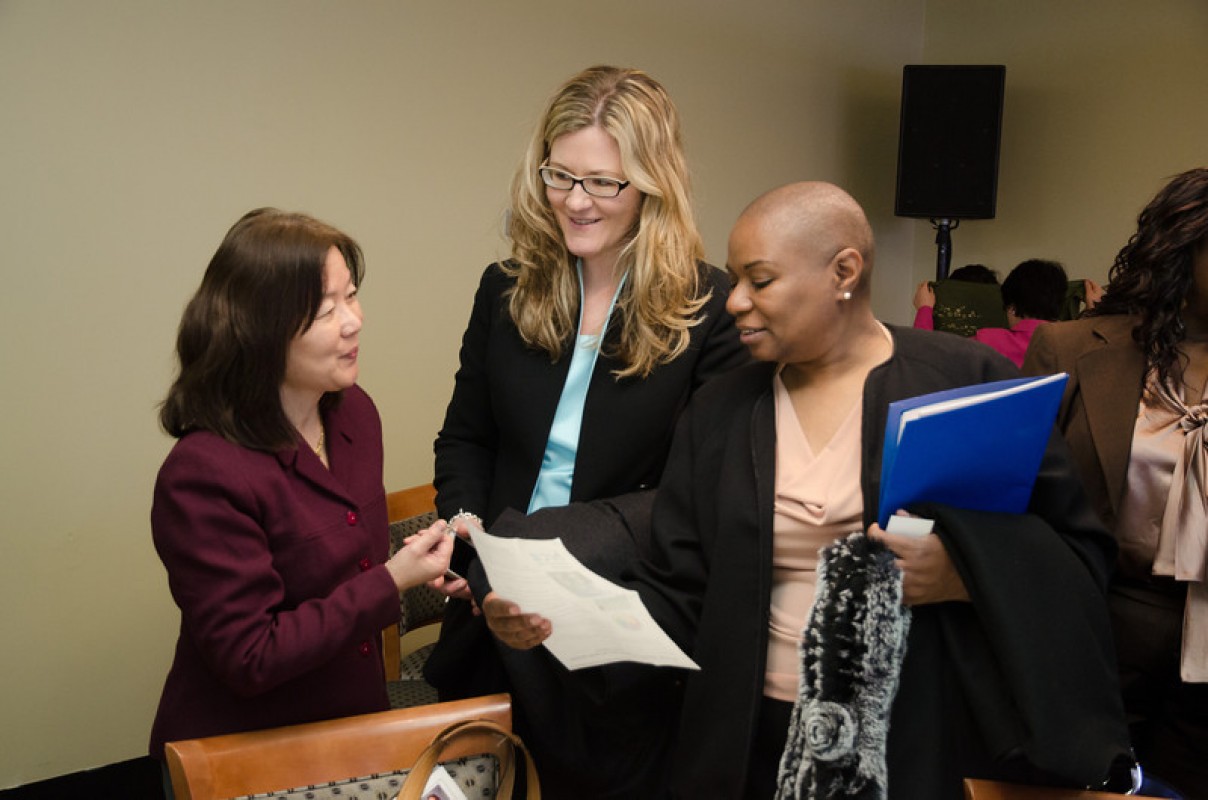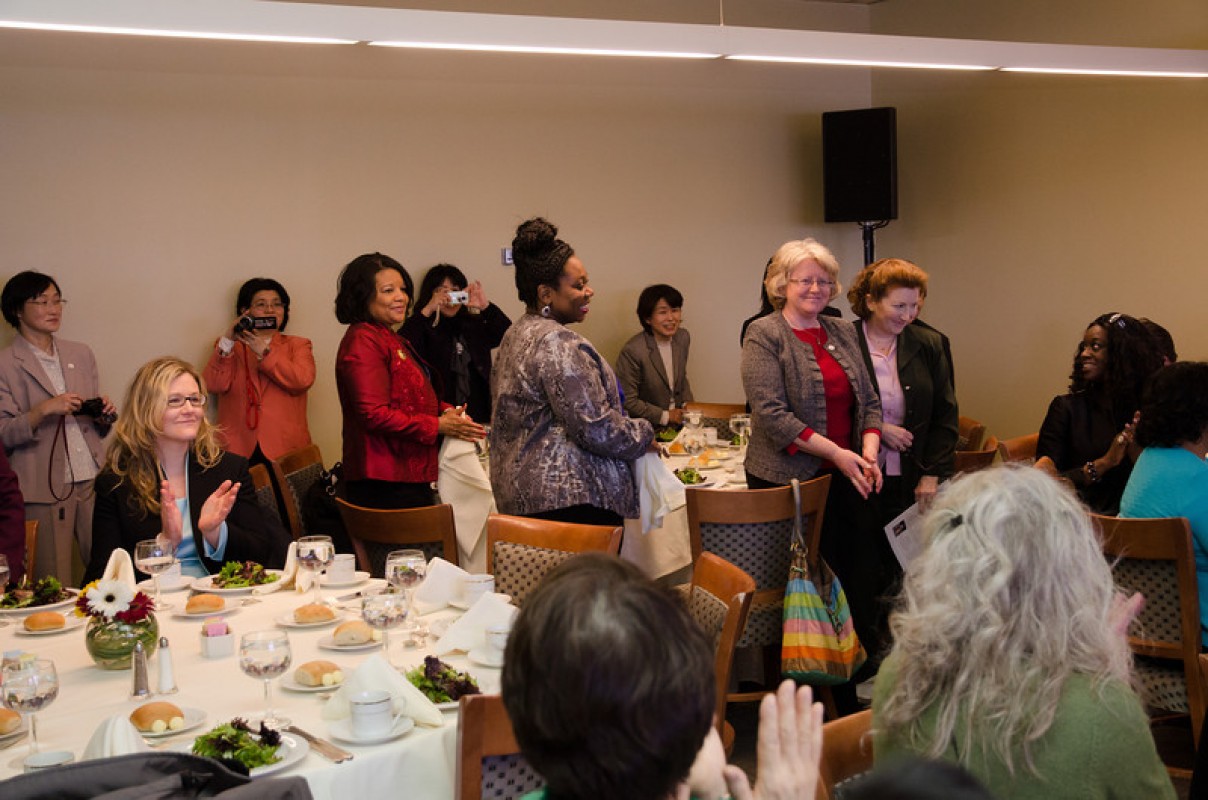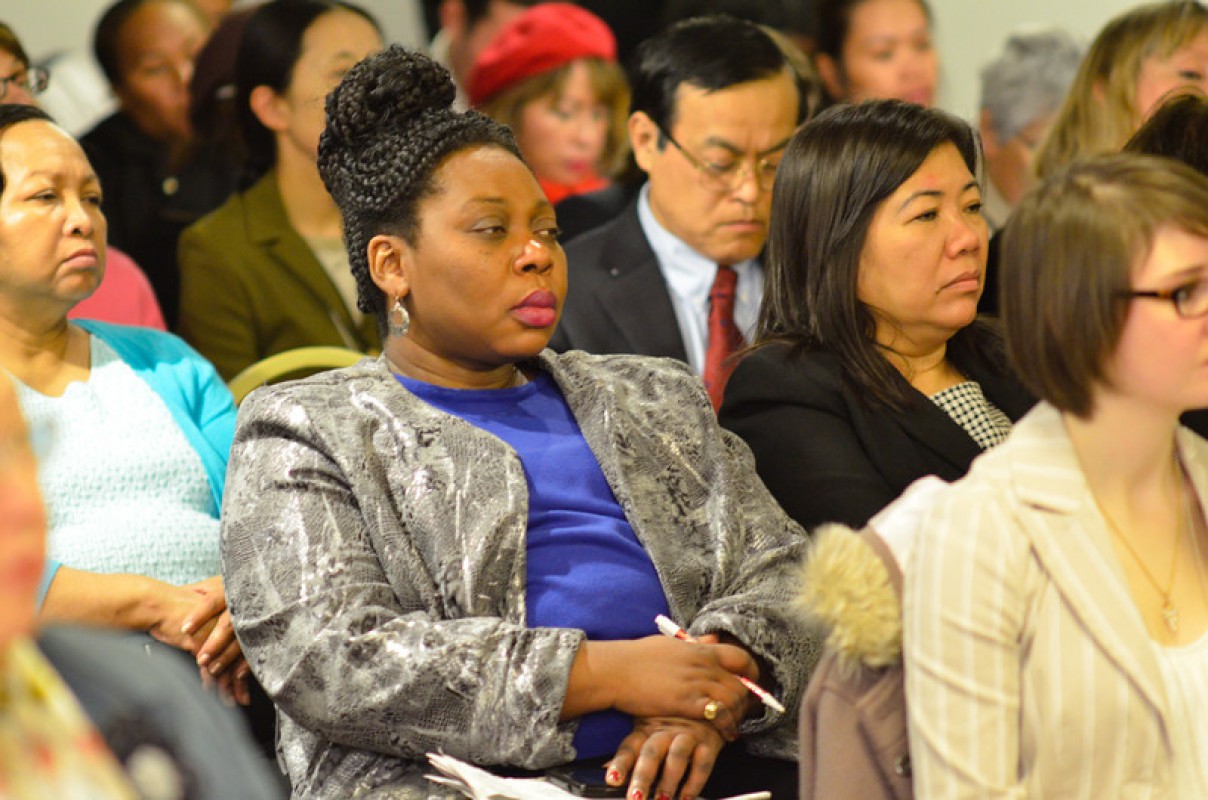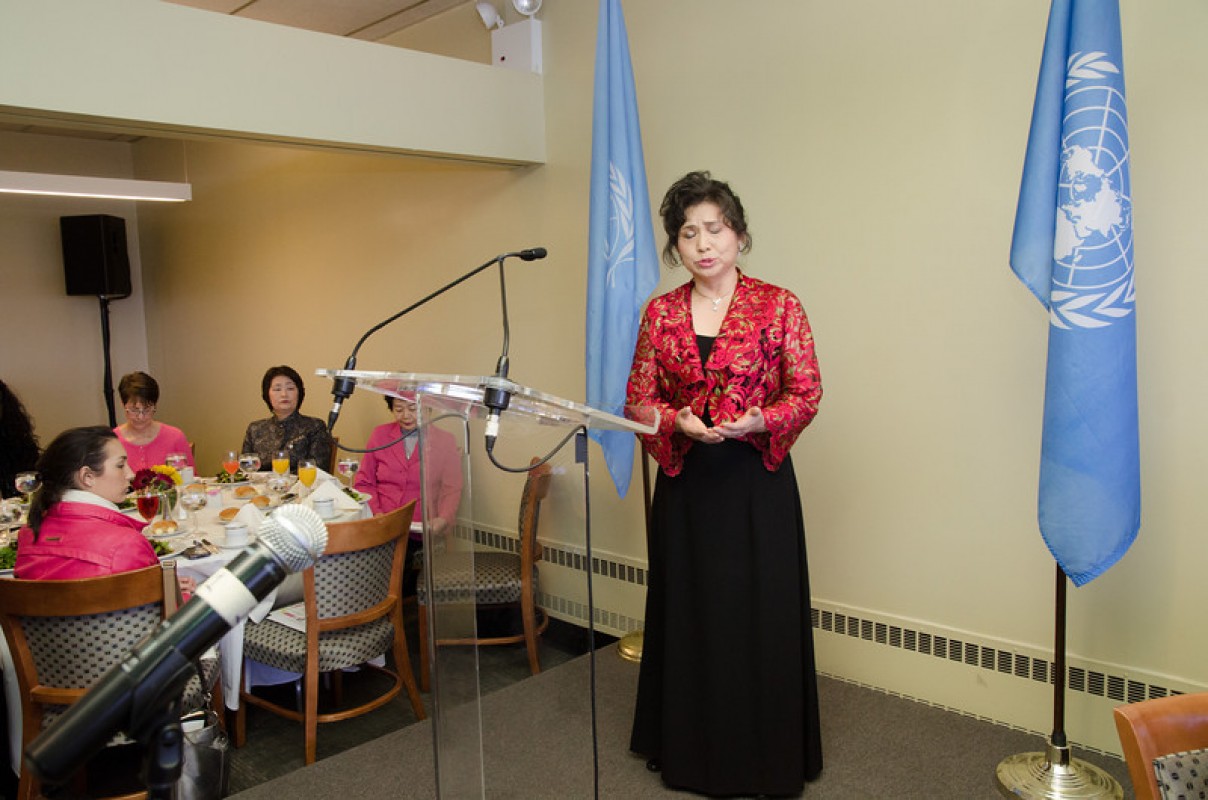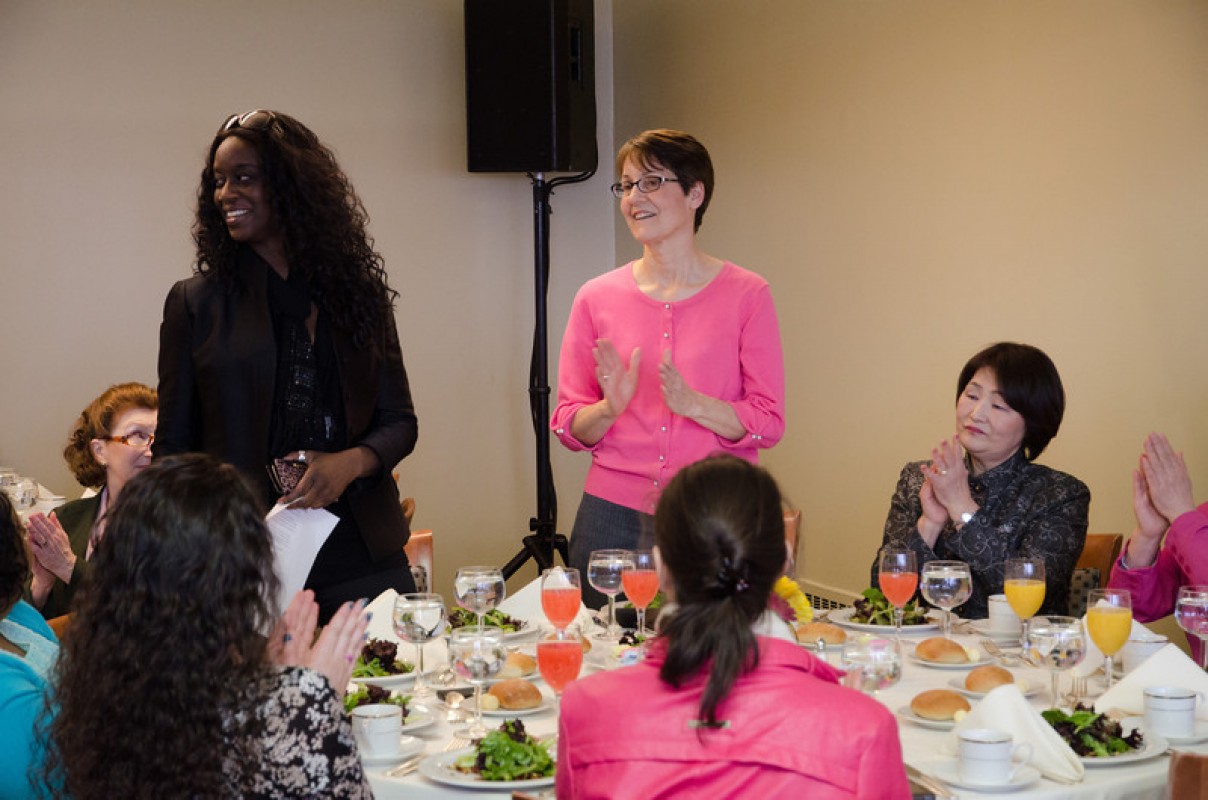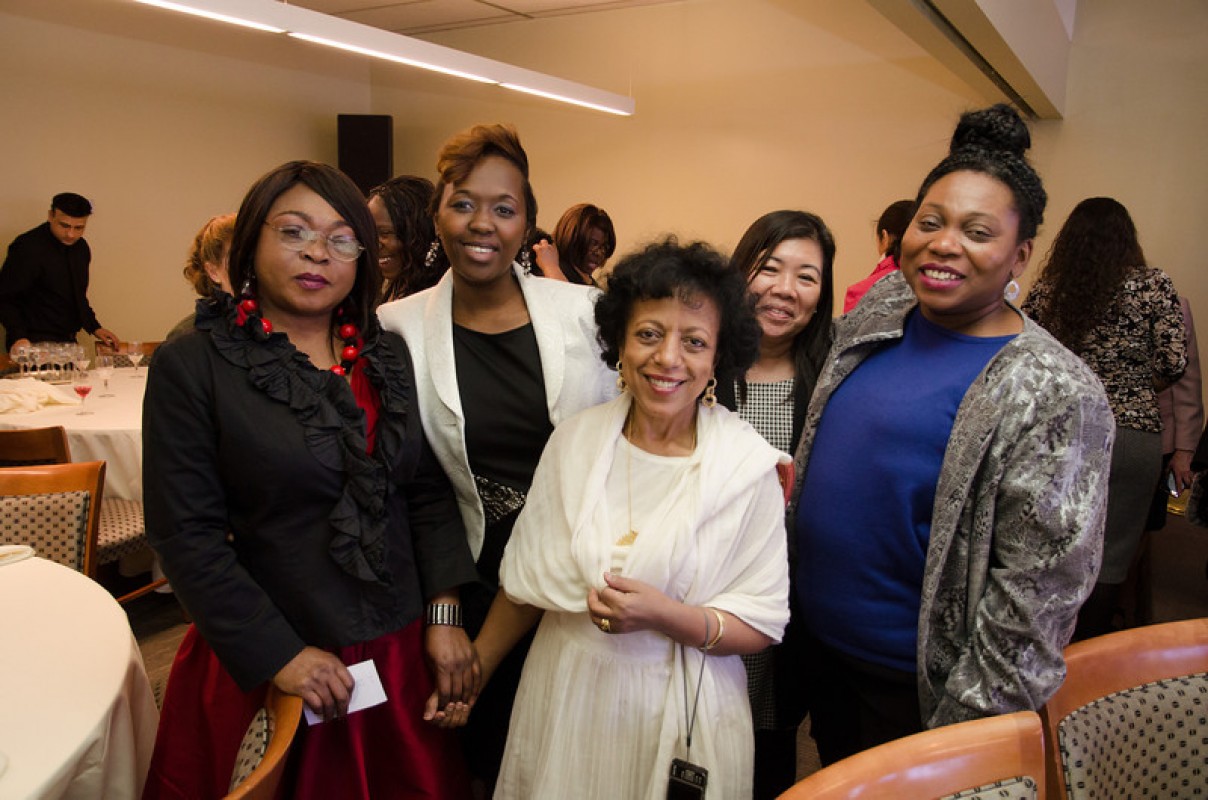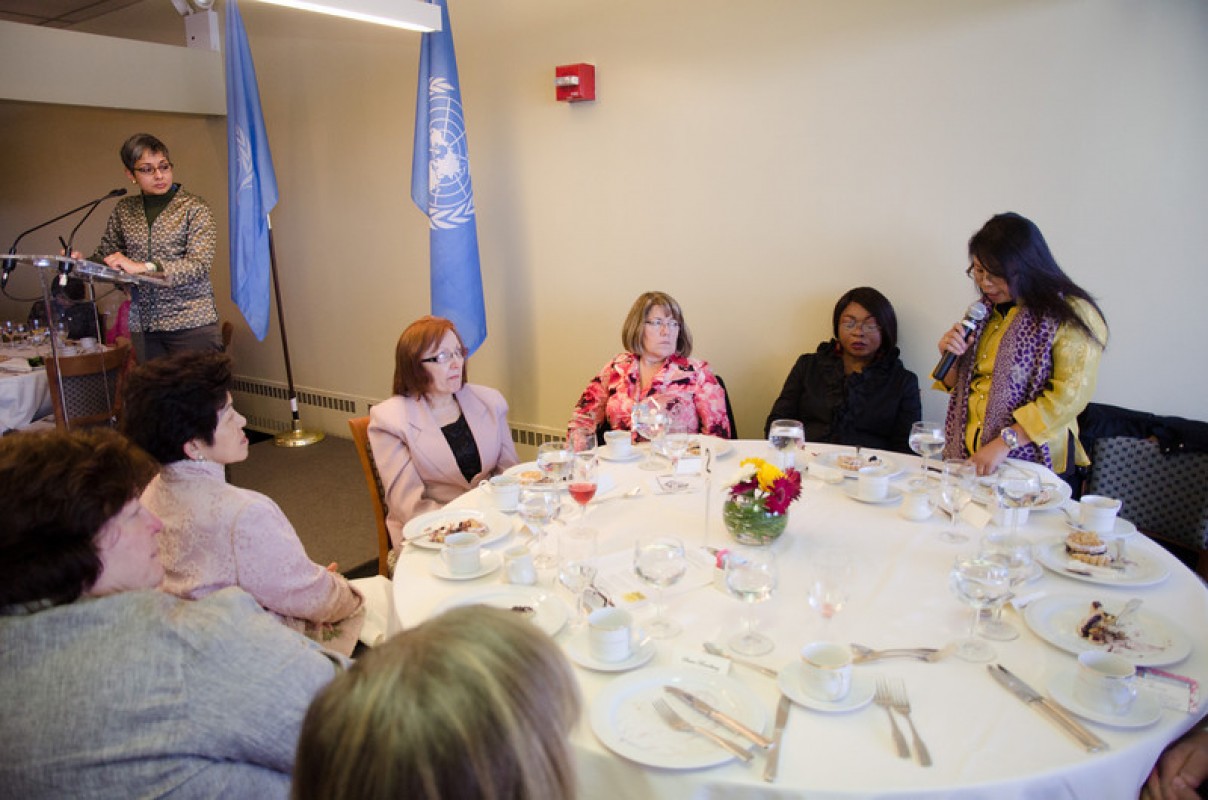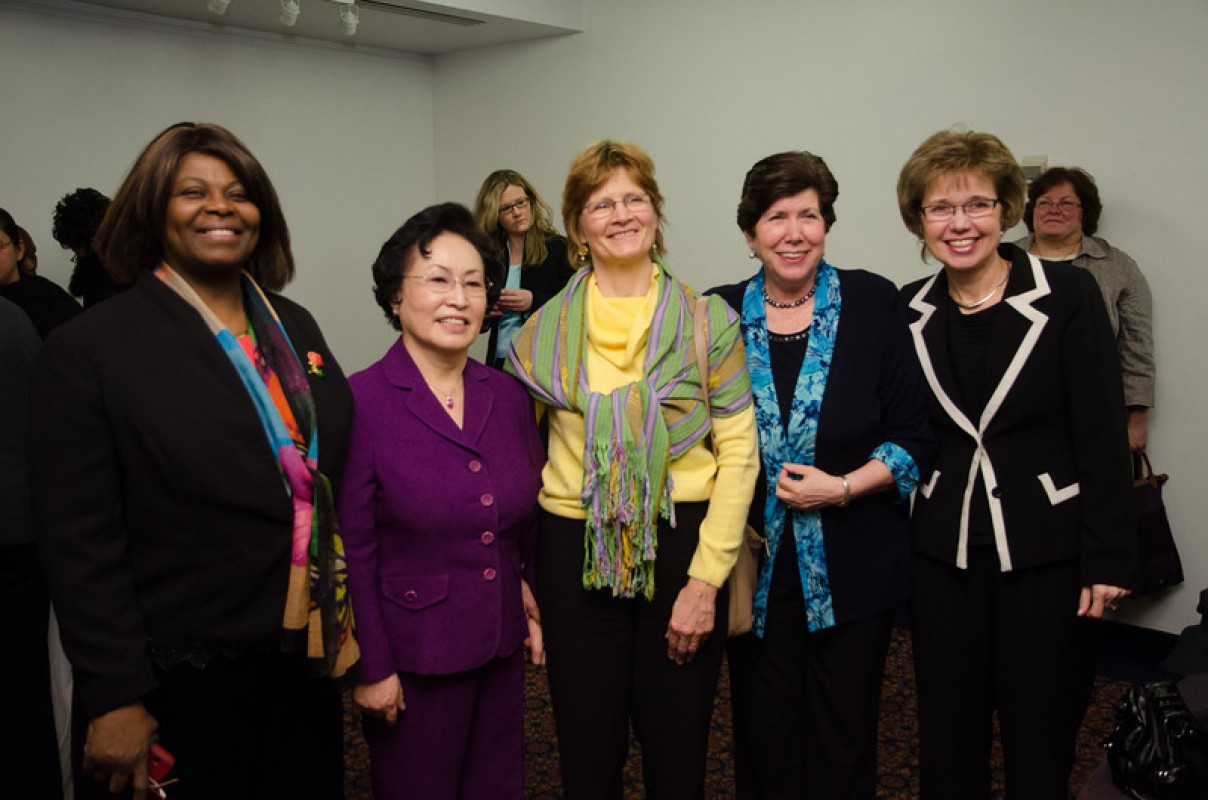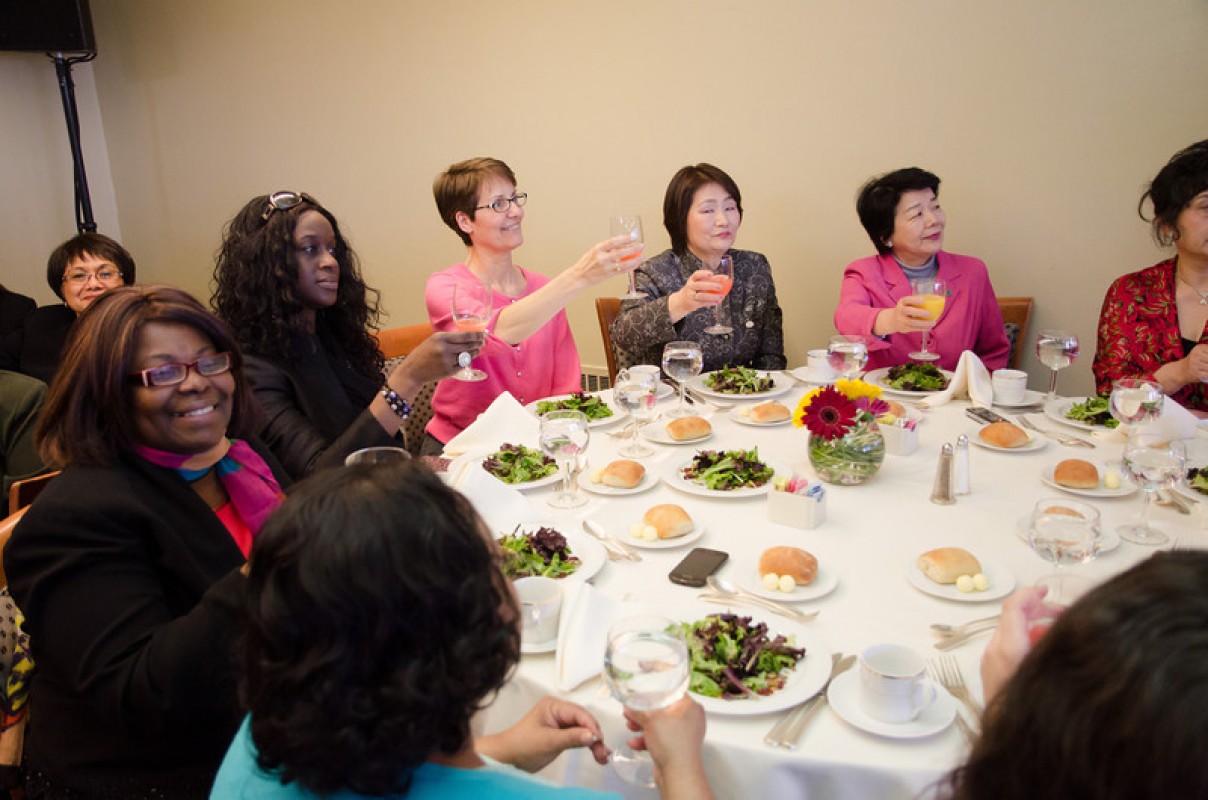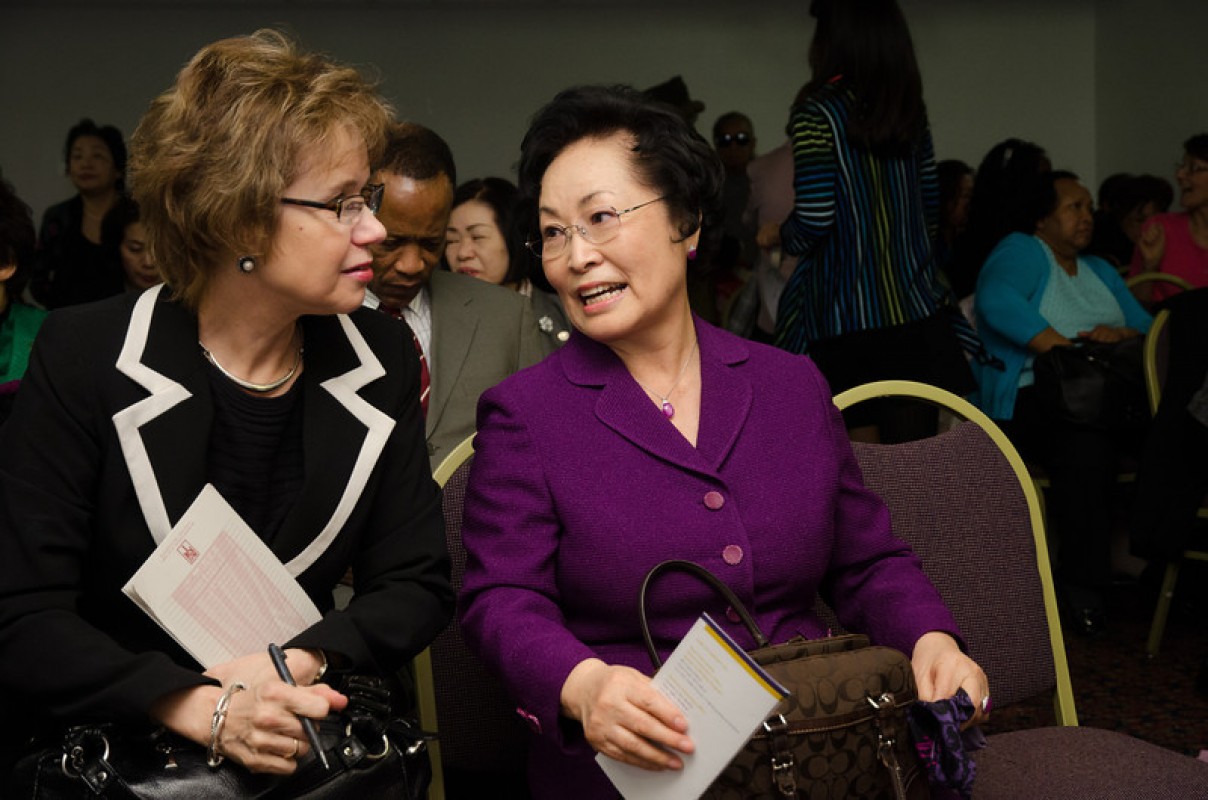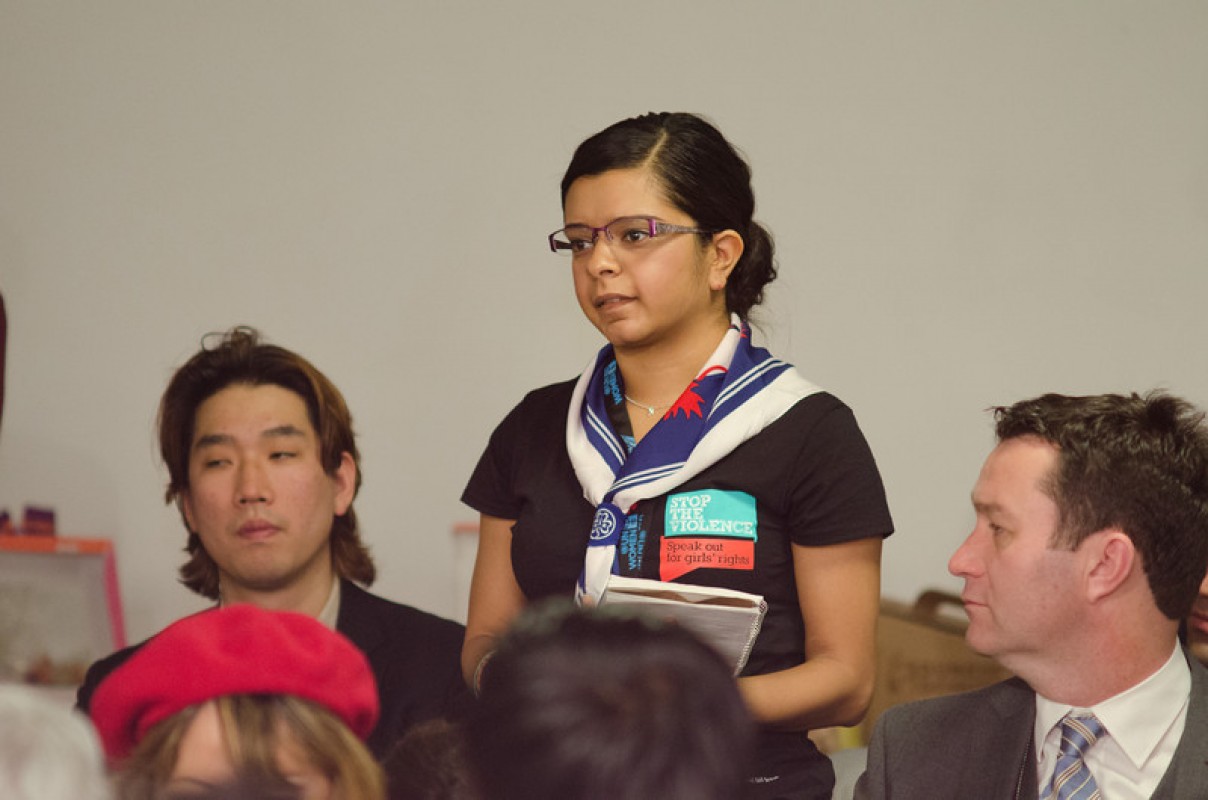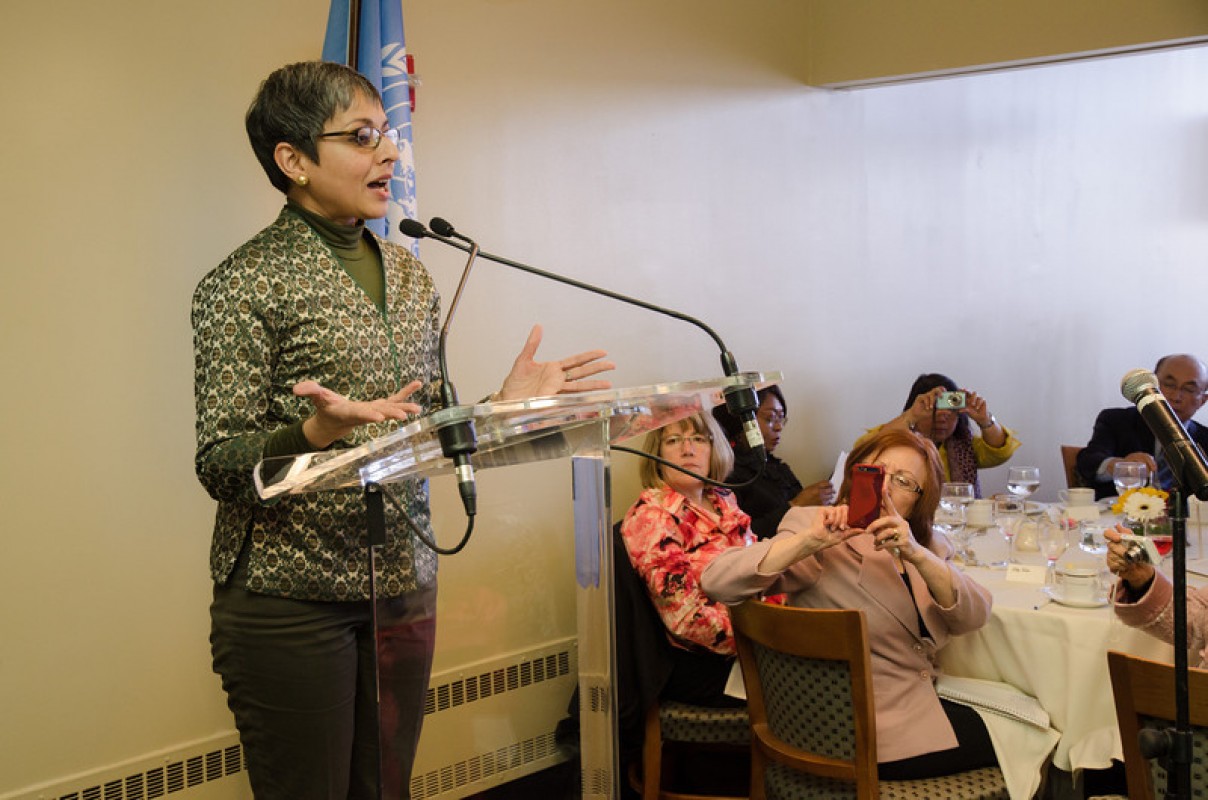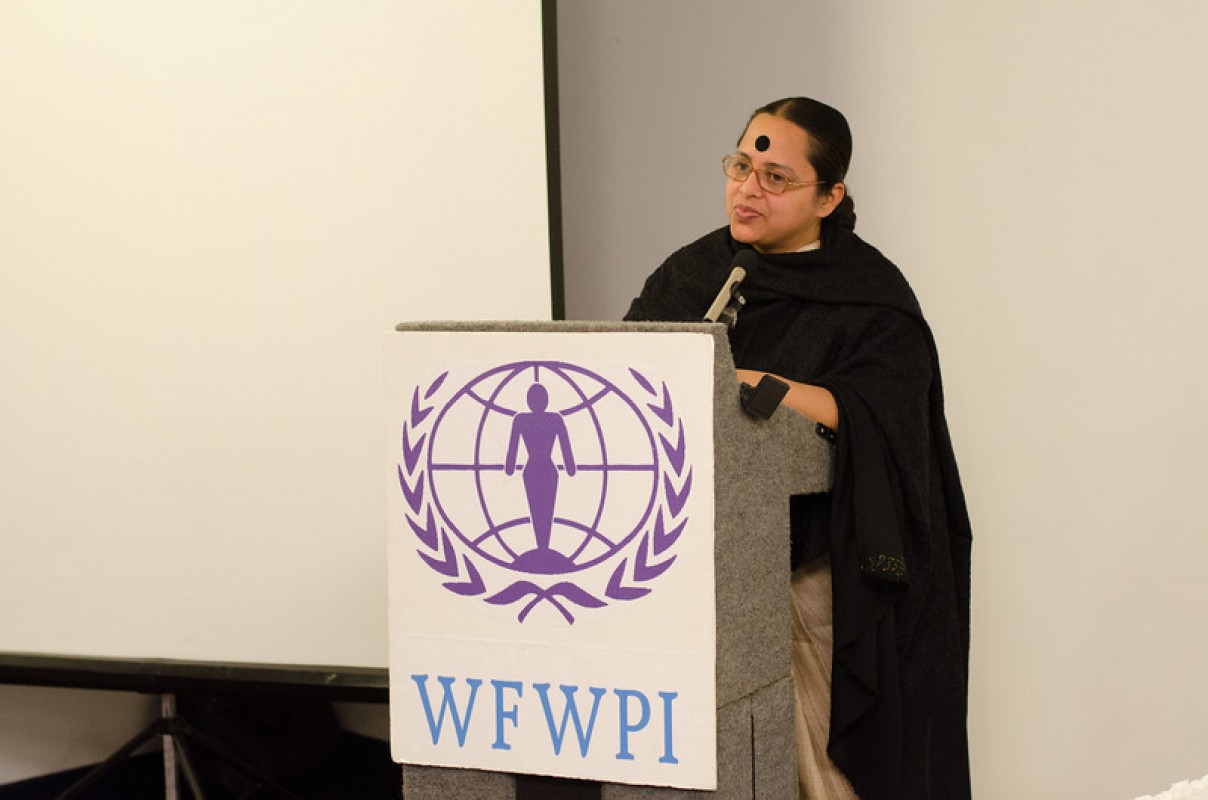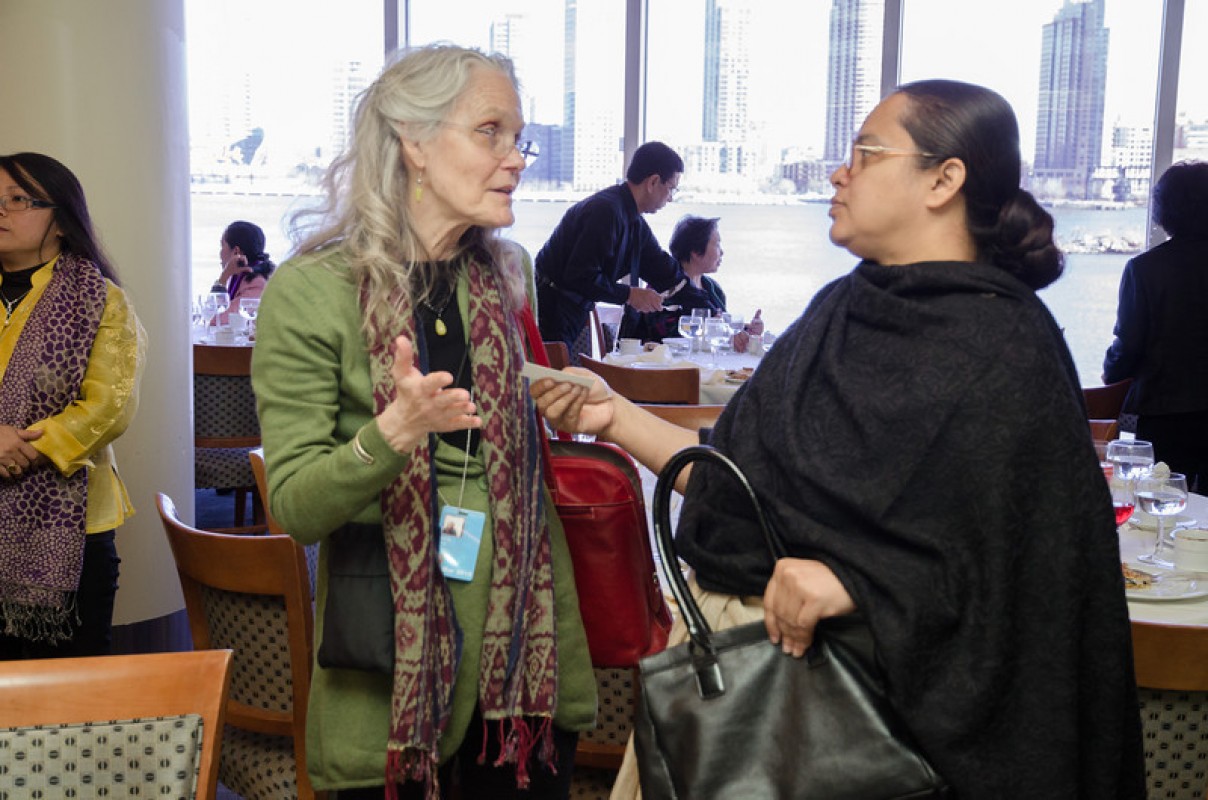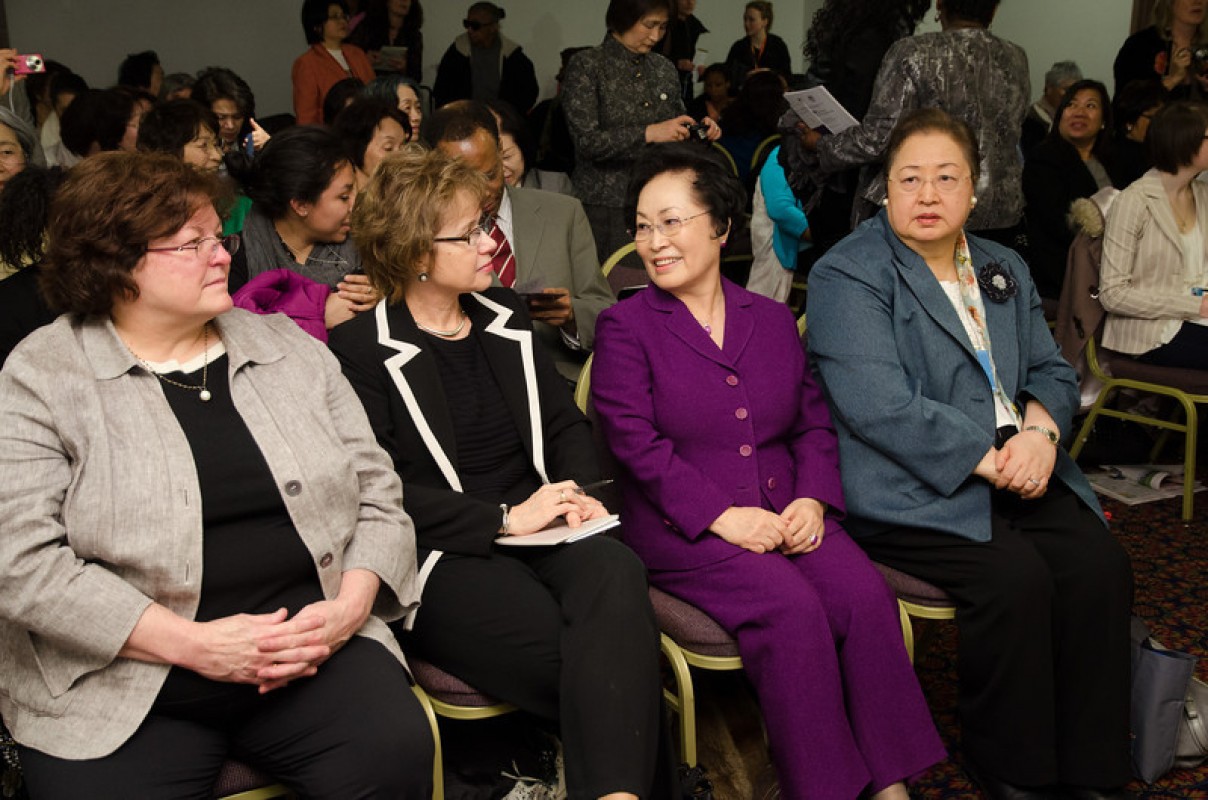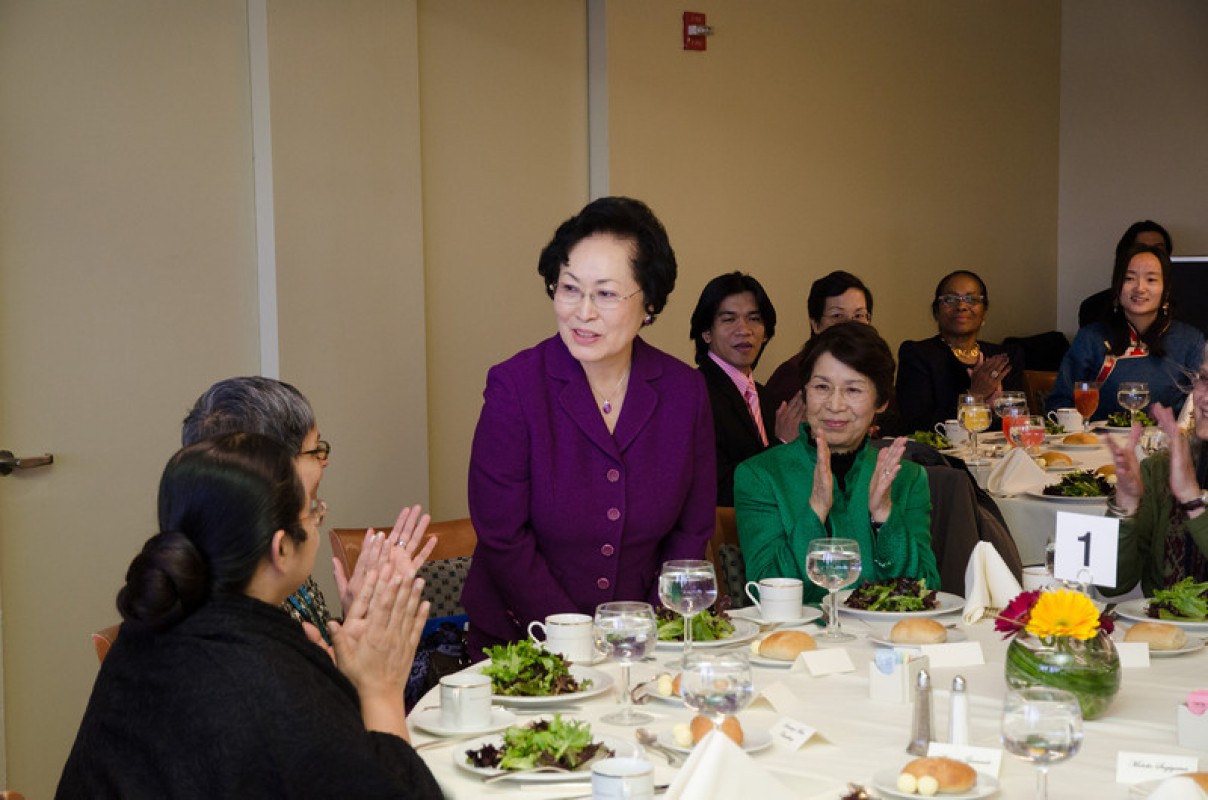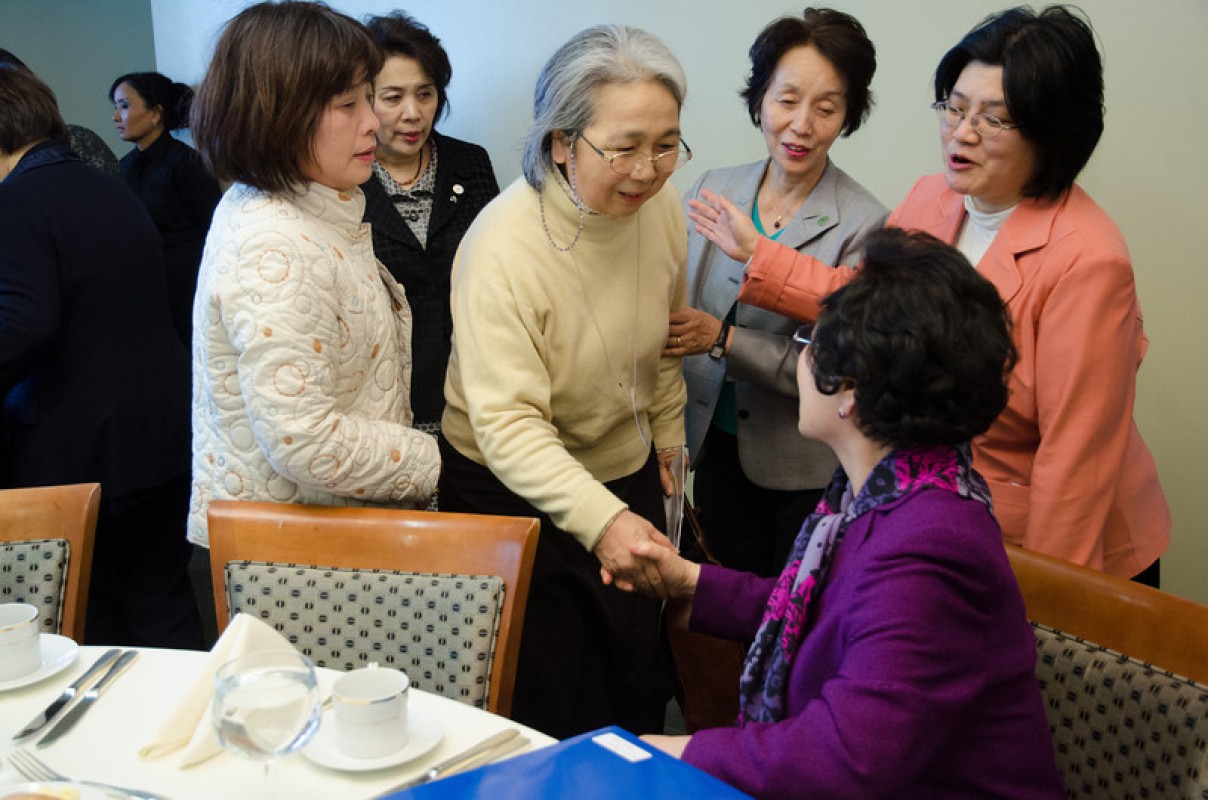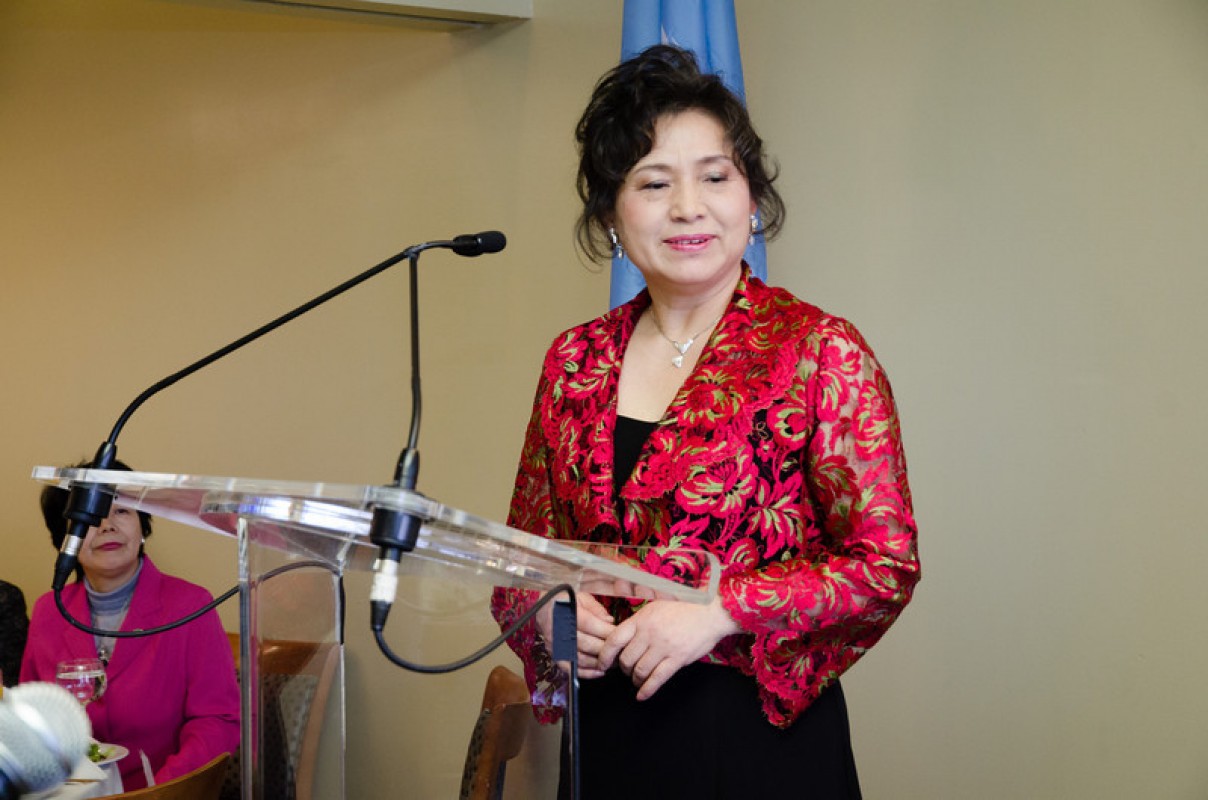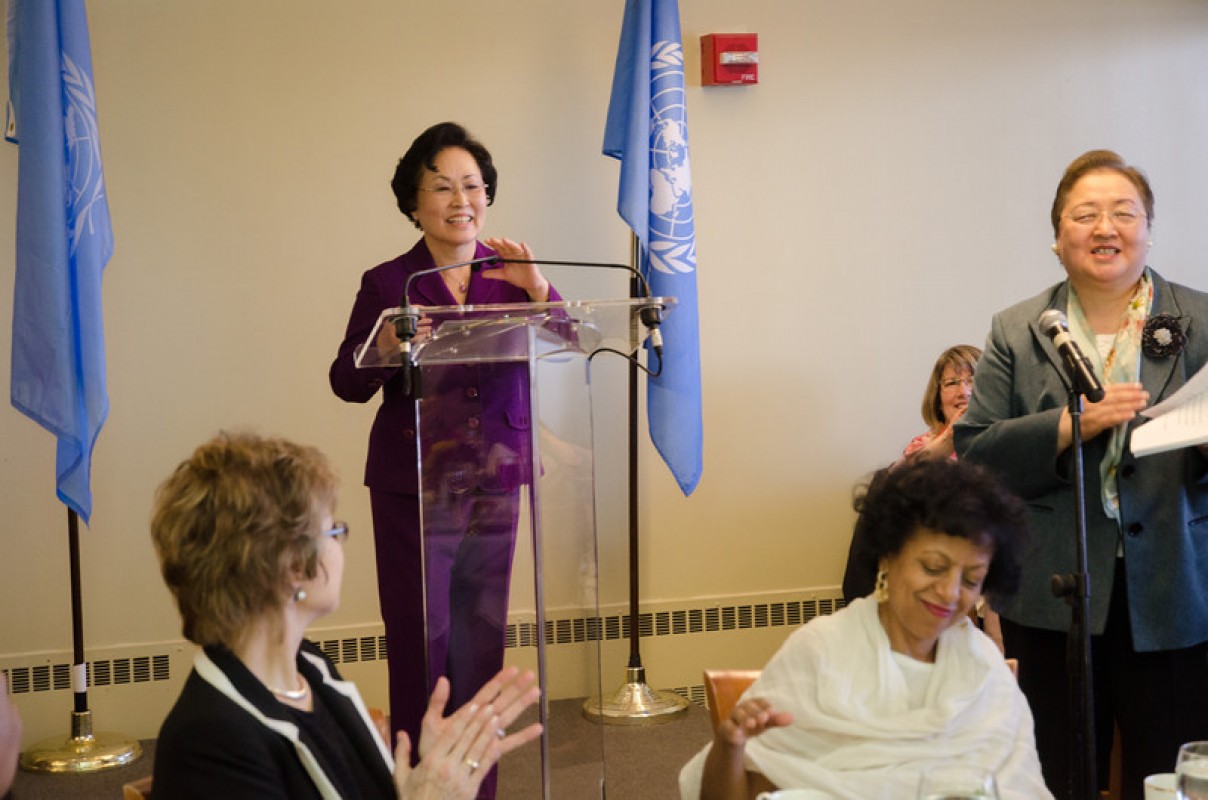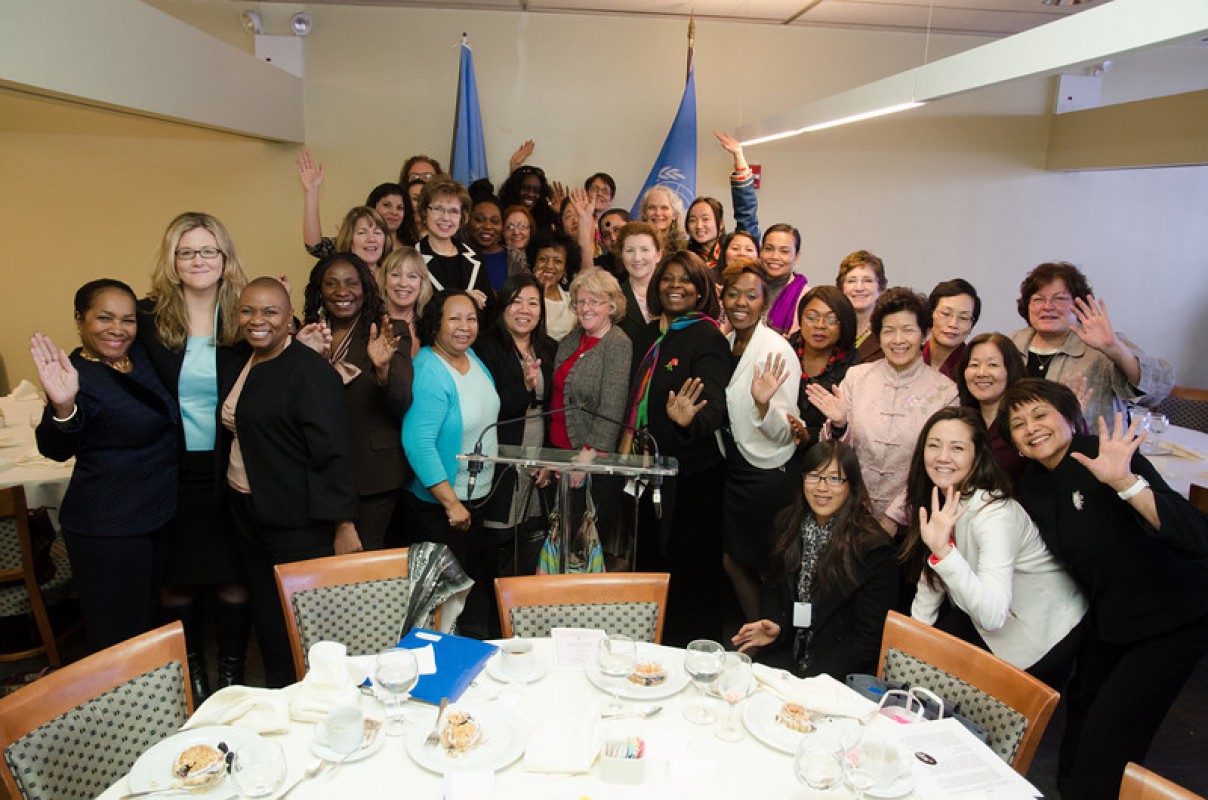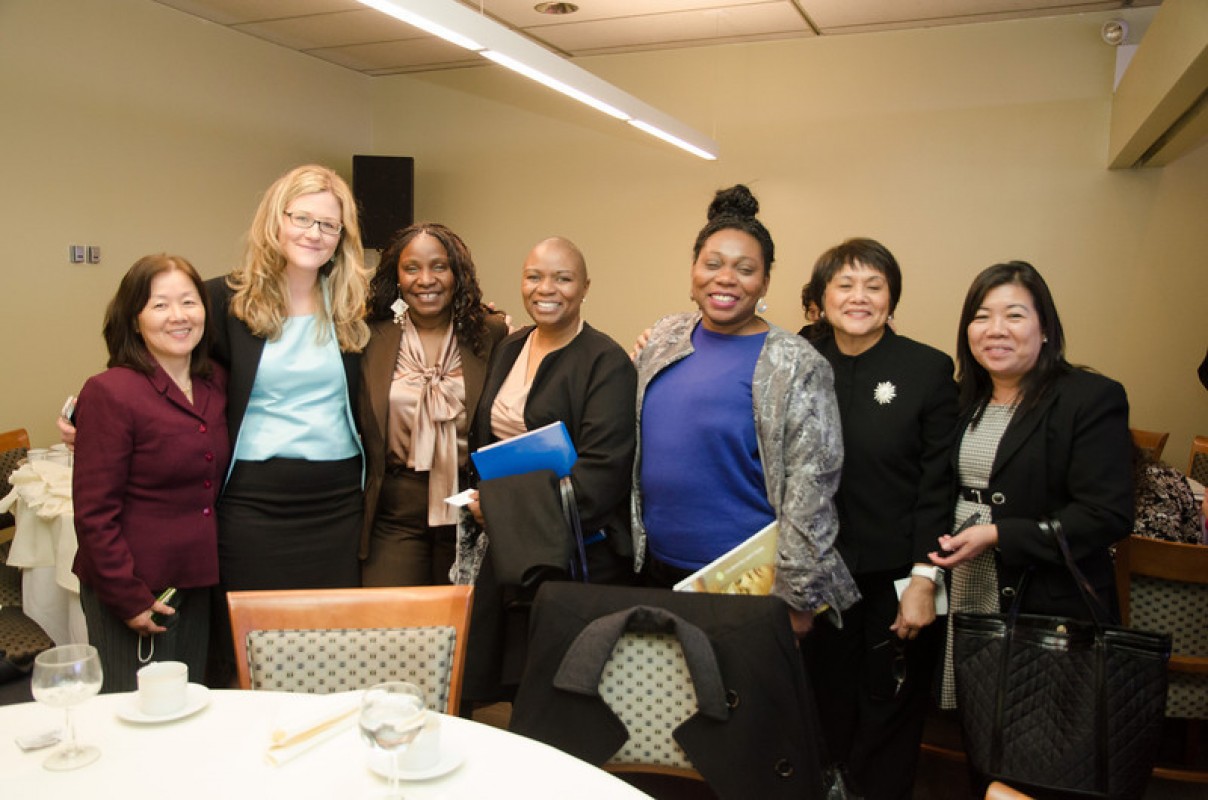NGO CSW 57 FORUM PARALLEL
From left to right: Dana C. Jack, Abaynesh Asrat, Mrs. Lisa Carol Williams, Ms. Sreerupa Chaudhury
WOMEN STANDING UP TO VIOLENCE: FINDING WAYS THROUGH HOPE AND CONNECTIONS
On March 4, the Armenian Convention Center in New York attracted fresh faces in anticipation of inspiring talks from four expert panelists. The event served as a forum for the panelists to share how they prevailed over violence and its effects. Representing their work in Africa, South America, Asia, and the United States, they included best practices for facing and overcoming domestic violence and spoke of successful work to rescue and support girls and women who are victims of sex trafficking. They presented perspectives from the areas of education, the law, psychology, and grassroots service and advocacy. The room was full with 200 participants.
As the panelists each spoke from the podium, audience members listened to the harsh statistics on violence against women. Ms. Lisa Williams, founder and president of Circle of Friends and Living Water for Girls, representing the United States, opened the session with a reality check on how human trafficking is also alive and well here in this country, based on her own experience. She put out a strong call to action to create awareness and pointed out possible solutions to the problem. In fact, all panelists presented their own personal connections to violence, including visual presentations and passionate step-by-step suggestions for change. All the issues at hand in various parts of the world were communicated to emphasize the themes of connection and hope.
Wearing a hand-woven sari crafted by rape survivors, Ms. Sreerupa Chaudhury, president of the Women's Federation for World Peace India and chairperson of the National Institute for Gender Justice, first introduced the news story of a brutal rape of a 16-year-old paramedical student in New Delhi last December 16 that riveted the world's attention. She explained certain challenges that included violence against women in areas of armed conflict and disputed borders.
Keynote speaker, Ms. Lopa Banerjee, chief of the Civil Society Section of UN Women, gave a riveting speech on progress toward Millennium Development Goals. It has been a struggle, she said, to fulfill some of the aspirations in areas of women's health and education. The goals for gender equality are still far from fulfilled. There is gender parity in primary schools, she said, but gender inequality still exists in work, education, and the economy. Ms. Banerjee insisted there be a commitment to achieve gender equality, especially moving forward into the post-2015 development agenda.
She suggested that there should be strong goals to achieve women's rights. She hopes that women can exercise their voice through the efforts being made at the UN.
When asked how WFWPI could support the work of UN Women, she strongly recommended connecting with UN Women's over 50 in-country offices or the more than 70 affiliate offices around the world, and particularly stressed joining together in the work of forming the post-2015 development agenda.
*Ms. Williams received the WFWP USA HerStory Award at the 20th Anniversary National Assembly of WFWP USA last year in Las Vegas.


